Discover The Autistic Culture Podcast
The Autistic Culture Podcast

The Autistic Culture Podcast
Author: Angela Lauria
Subscribed: 76Played: 1,611Subscribe
Share
© Autistic Culture Podcast
Description
>>>Autism is not just a less common neurotype. It is also a CULTURE.<<< If you are Autistic - or love someone who is - subscribe below or just hit 'Skip & See Inside' for access to episodes and much more. Listen to our complete podcast here for free.
74 Episodes
Reverse
Autistic hosts, Dr. Angela Lauria and Matt Lowry, LPP, interview belly dancer and entrepreneur, Arielle Juliette. * Sensory sensitivities and accommodations in dance.* Cultural appreciation versus cultural appropriation.* Running a business on “glitter and non-denominational Jesus.”* Echopraxia and Arielle’s other super hero powers.* Perks of (mild) hypermobility.* “Meat sack” and “brain sack” communication* How to teach dance using bottom up processing.* Angela and Arielle’s body liberation journeys.* Arielle’s autistic self-identification and realization he’s trans!* How internet trolls and haters helped Arielle tap into deeper self-acceptance and self-love.* Group stimming and regulation, plus body resonance fun!* Stimming as the genesis of great art.“What if stimming is the core cultural attribute of some of our highest art?”“So I actually, I recommend people have haters. I recommend you have haters, and that you say to them, ‘F**k you. I'm doing me.’”“It's about coming together for our weekly regulatory time. You know, we have this set time that we will always come and regulate together. We're going to shimmy, we're going to stim, we're going to sing, we're going to sweat. It's going to be awesome.”Arielle Juliette (he/him and she/her) is the owner of Dance Life, where he cultivates an atmosphere that celebrates, supports, and embraces the autistic dance experience. Arielle has had a special interest in dance since 2004, and shares her love of Egyptian dance in particular through silly songs and easy to understand anecdotes, while leaving behind the allistic conformity of right/left, counts, and perfection. He also creates viral social media videos, where he strives to bring his unmasked, joyful, autistic self and the idea that all bodies (and neurotypes!) are worthy.Have you group stimmed in some way? What was your experience? Madison Dance Life FacebookMadison Dance Life InstagramMadison Dance Life TikTokwww.madisondancelife.comThe differences between Egyptian and Turkish danceA video of Arielle’s that includes all her favorite books, podcasts and resources for fighting fat oppression Master instructors who have online classes: * Zara Abdelrahman* Mohamed Shahin* Suhaila SalimpourEpisode 17: Wednesday is Autistic?Episode 29: Questlove is AutisticEpisode 64: Taylor Swift is AutisticReady for a paradigm shift that empowers Autistics? Help spread the news!Like and follow us on InstagramListen on Apple podcasts and SpotifyMatt Lowry, LPPAutistic Connections Facebook GroupDifference Press and AngelaLauria.com Find Angela on Twitter and TikTokGet your merch on in our shop! This is a public episode. If you’d like to discuss this with other subscribers or get access to bonus episodes, visit www.autisticculturepodcast.com/subscribe
Matt Lowry, LPP shares a deep dive on Rick and Morty with co-host, Dr. Angela Lauria.* How getting fired from Community propelled Autistic writer, Dan Harmon, to create Rick and Morty.* The Back to the Future origins of Rick and Morty, plus fanbase shenanigans.* Processing childhood trauma through writing.* The complex relationship many autistics have with talk therapy.* Why Autistic culture is filled with meta references.* Autistic personal growth journeys and learning to embrace your true self.* Emotional-support people and why we need them.“We are going to be talking about what it might be one of the finest and most Autistic cartoons of all time that has possibly the most toxic fan base of all time.”“So at the time, he was a massive, massive, massive, self-loathing alcoholic. And that came out in the character of Rick.”“It's a very big show of growth—especially from an autistic perspective—and how we learn to more effectively relate to the people around us, how we find ourselves, how we state our own needs.”Are you a Rick & Morty fan? What do you relate to most? Rick and Morty on WikipediaEpisode 57: Community is AutisticEpisode 60: Mythic Quest is AutisticEpisode 64: Taylor Swift is AutisticEpisode 68: Kink is AutisticReady for a paradigm shift that empowers Autistics? Help spread the news!* Follow our Instagram* Rate us on Apple podcasts and Spotify* Check out our Teepublic merch shop* MattLowryLPP.com * AngelaLauria.com* Autistic Connections Facebook Group* Write a book with Angela at Difference Press* Angela’s social media: Twitter and TikTok This is a public episode. If you’d like to discuss this with other subscribers or get access to bonus episodes, visit www.autisticculturepodcast.com/subscribe
#ActuallyAutistic podcast hosts, Dr. Angela Lauria and Matt Lowry, LPP, interview Dr. Kade Sharp to discuss the ways that kink fits into Autistic culture. * What is kink (spoiler: it’s not necessarily sexual!), what are some common kinks, and are “kinksters” dangerous or ill?* The fundamental flaws in most research methods that explore Autistic sexuality.* Stereotypes and misunderstandings that most people have about the kink community.* Kinky spreadsheets and other Autistic systems of communicating comfort and consent.* Honoring sensory differences, connecting through SPINs, defined expectations, and other ways that the kink community appeals to so many autistics.* How kink helps neurodivergent folks to feel empowered—regardless of whether or not they identify as a kinkster. * Tips on exploring kink with partners, finding kinky folks to explore with, and getting kinky solo.“I think I just found out I'm kinky.”“I think a lot of your listeners are going to find that out today.”“Someone asked if he was my biological son. And I said, ‘why, yes.’ And somebody was like, ‘well, how did you make him?’ And…It occurred to me while answering this question: there is a big myth out there that we do not have the sex.”“Kink is not just sexual. So, in fact, a good proportion of the folks that responded to my eligibility survey for the study were on the aro/ace spectrum.”“There's so much unspoken stuff and so much resentment because allistic partners say, ‘You should know what I want,’ or that kind of nonsense. But when you explicitly negotiate and have spreadsheets regarding everything from eye contact to butt stuff, it makes relationships run a lot smoother.”Are you an Autistic kinkster? How does kink help empower you? Share in the comments! #AutisticCultureCatchGuest Bio:Dr. Kade Sharp (he/they) is an autistic transgender Licensed Independent Clinical Social Worker practicing in Richland, Washington, at Spectrum Counseling, his private practice, where he sees therapy clients, supervises clinicians working toward licensure, and provides case consultation for colleagues. Kade is also a Registered Play Therapist-Supervisor and a certified Child Mental Health Specialist. He has his PhD in Clinical Sexology through Modern Sex Therapy Institutes. Kade has a clinical focus on working with autistic and trans folks of all ages, especially those with anxiety challenges. His volunteer work over the past ten years has been with local LGBTQ+ youth centers, Pride organizations, the Diversity Equity Inclusion team at a local school district, and serving on the WA state chapter of the Association for Play Therapy board. Resources:* A Kink in the Spectrum (Kade's dissertation)* Dr. Erin Findley (dissertation chair)* Dr. Amy Pearson (dissertation committee member)* Dr. Nick Walker (dissertation committee member) * Neurokink (Kade's side project & mailing list)* Mojoupgrade (digital kink checklist)* Bex Talks Sex's Super Powered Yes/No/Maybe List (printable)* Thrive (an annual virtual BDSM & Mental Health Conference)* Dr. Faith G Harper's publications on sex, kink, & mental health* Dr. Emily Nagoski's publication on sex* Dr. Katie Munday's research and advocacy* FetLife (kink social media)* Hiki (autistic dating app)Similar episodes:* Episode 35: Sex is Autistic* Episode 56: Lessons in Chemistry is Autistic* Episode 59: Pregnancy is AutisticReady for a paradigm shift that empowers Autistics? Help spread the news!Follow our new Instagram page!Rate and review us on Apple podcasts and SpotifyMatt’s website: Matt Lowry, LPPJoin Matt’s Facebook group: Autistic Connections Facebook GroupFind Angela at: AngelaLauria.com and Difference PressFollow Angela on: Twitter and TikTokTACP’s autism-affirming merch shop This is a public episode. If you’d like to discuss this with other subscribers or get access to bonus episodes, visit www.autisticculturepodcast.com/subscribe
This episode:Dr. Angela Lauria and Matt Lowry, LPP chat with Ashley Storrie—the autistic writer and star of the new series, “Dinosaur” (available on Hulu in the U.S.). Discussed:* The unconventional way that Ashely was brought on as a writer and the importance of Autistic writers shaping autistic characters.* How Ashley came to discover her autistic identity.* Autistic linguistics and the “shape” of words.* How production accommodated Ashely (and everyone else!). Plus, how Ashley avoided being triggered while authentically portraying overwhelm and overstimulation.* Why casting autistic actors in autistic roles is not only good representation—it’s good business!* An autistic brain love fest.* The behind-the-scenes process of deciding on the exact sexual history of Ashley’s character, Nina.* Same foods, sensory seeking tastes, and stimming with food!* Ashley’s complex history with The Edinburgh Fringe Festival.Quotes from this episode:“And she was like, you know, ‘You spend your life accommodating people. How about for this, we'll accommodate you?’”“So good, so clever, but also understood the assignment because it's a lived experience. And that's like you're saying: if you live it and you know it, it's not hard.”“It was more going right into myself and saying, ‘Who would you be if you didn't have all of that burden of pretending?’”“She's overcoming people, and maybe their relationship to autism, and she's overcoming other people's things, but never autism itself. That's a part of her and she loves it.”“So I've licked the Great Wall of China. I've licked Jimi Hendrix's guitar…It was such a compulsion of tasting history that I had to do it.”“And I have like a crunchy food, a soft food, a wet food and a dry food. And that's how I roll.”“Yeah, so much of what's magical about this show is just feeling so seen. And it's just such a gift.”More on Ashley:Comedian, writer and actress Ashley Storrie can be heard hosting her BBC Radio Scotland show live every Friday night from 10pm-1am. She is also the co-host of the new Midsomer Murders Podcast. Ashley is also known for her Harry Potter parody #tanyapotter, which has now had over 22 million views. As a result of her online success she was commissioned by BBC Scotland to create online content for their Short Stuff strand, producing viral hits including ‘If The Handmaid’s Tale was Scottish’ and ‘If Game of Thrones Was Scottish.’Do you feel represented by Ashley’s character, Nina? Tell us in the comments and use #AutisticCultureCatch to share your answer on your social media and connect with other listeners!Show notes and resources:Follow Ashley Storrie on InstagramCheck out the official trailerWatch Dinosaur on HuluOther episodes to check out if you liked this one:Episode 10: Star Trek is AutisticEpisode 17: Wednesday is Autistic?Episode 54: Comedy is AutisticEpisode 57: Community is AutisticReady for a paradigm shift that empowers Autistics? Help spread the news!Check out our InstagramFind us on Apple podcasts and SpotifyFind Matt at Matt Lowry, LPPMatt’s social media: Autistic Connections Facebook GroupLearn more about Angela at AngelaLauria.com and Difference PressAngela’s social media: Twitter and TikTokTACP’s merch shop This is a public episode. If you’d like to discuss this with other subscribers or get access to bonus episodes, visit www.autisticculturepodcast.com/subscribe
Matt Lowry, LPP and Dr. Angela Lauria discuss:* Which came first: the autistic or the neurotypical? Are Autism and ADHD the same thing? Do neurotypicals have a disorder of pruning? * How ‘X-Men’ addresses discrimination, social justice, and provides representation for marginalized groups.* The two canonically autistic X-Men and several autistic-coded ones too! Plus, some of the errors allistics make when they try to write autistic characters.* Spiky profiles, code-switching, and the price (and privilege) of masking.* Matt’s no-holds-barred honest opinion of ABA for autism.* Hans Asperger, his legacy, and real-life mandatory autism registrations in at least eight U.S. states. * And, are bleach enemas a “cure” for autism? (Hint: NO!)Quotes from this episode:“In X-men, Mystique, the shape changer, can turn into human looking people and they ask her, ‘You can be anyone you want. Why do you do this?’ And she said, ‘Well just because I can be anyone I want, doesn't mean I should have to. You should be able to be yourself you should be able to be free to be the real authentic you and not mask.’ And, she literally masks all the time for survival, and that is exhausting.”“First stone tools—autistic people. First iron bridges—autistic people. Calculus—autistic people, like everything. We are not a new phenomenon.”“So basically we hoard our synapses like we hoard our collectibles.”“We are synapse hoarders. And this is why our brains process up to 42% more information at rest than neurotypical people.”“If you like weird, dark ‘Glee,’ you're going to love this.”Which X-Men superpower would you use to make the world safer for autistics? Which X-Men is your favorite? Tell us in the comments and use #AutisticCultureCatch to share your answer on your social media and connect with other listeners!Show notes and resources:Trailer for the new X-men series on Disney+: X-Men '97Other episodes to check out if you liked this one:Book Club #06: True BizEpisode 24: The Trouble with TempleEpisode 28: Superheroes are AutisticEpisode 30: Doctor Who is AutisticEpisode 61: Wikipedia is AutisticReady for a paradigm shift that empowers Autistics? Help spread the news!TACP’s InstagramTACP on Apple podcasts and SpotifyMatt’s website: Matt Lowry, LPPMatt’s Facebook: Autistic Connections Facebook GroupFind Angela at AngelaLauria.com and Difference PressAngela’s socials: Twitter and TikTokTACP’s TeePublic merch shop This is a public episode. If you’d like to discuss this with other subscribers or get access to bonus episodes, visit www.autisticculturepodcast.com/subscribe
Autistic hosts, Dr. Angela Lauria and Matt Lowry, LPP, are joined by autistic author, Becca Lory Hector. Topics include:* Midlife autism diagnosis…and all of the bumps and bruises along the way to get there. Plus, is autism really “over-diagnosed”?* Why identification is so important—at any age.* A neuro-affirming way to process, unpack, and grieve after diagnosis. * “Autistic preppers bags”: what they are and why we need them.* The ultimate place for “hobbity” people to get lost in the woods.* Navigating relationships post-autism identification, including mixed-disability relationships.* The nuances of masking: who, what, when, where, and why.“An undiagnosed autistic person cannot—it's impossible—to take care of yourself. You don't have the information you need.”“And while we're expected to move on with our lives when our reality gets invalidated, neurotypicals really struggle when we do that to them.” Ode to the McNugget: “The perfection of McDonald's chicken nuggets is something to be marveled at a savory symphony of taste and texture accompanied by instant comfort and joy. Each golden crispy nugget is a bite of bliss. A delightful treasure, perfectly seasoned and cooked to tender, juicy excellence that pairs perfectly with the salty, savory goodness of their fries. The fries with their ideal crunch on the outside and soft, fluffy insides are the perfect companion to the magic of nuggets. Dipping them both into a favorite sauce creates a harmony of flavors to delight your senses. For me, McDonald's chicken nuggets aren't just a meal, but a joyful escape that consistently brings meaningful pleasure and comfort to my life. And no matter how many times I go, eating nuggets and fries remains a cherished ritual that brings me guaranteed satisfaction with every bite. Whether it's a reward after a doctor's appointment or a quick treat to lift my spirits, McDonald's chicken nuggets remind me that simple pleasures can bring the greatest joy.”What’s in your “Autistic peppers bag”?* For a limited time, early listeners can get their FREE copy of Becca’s book at: www.AlwaysBringYourSunglasses.com* Course: Self-Defined Living - A path to a quality autistic life* Becca’s website, Facebook, and InstagramWhat to listen to next:* Episode 21: Dino Nuggets are Autistic* Episode 31: Chess is Autistic* Episode 47: Autistic Centered Therapy - AuCT* Episode 61: Wikipedia is Autistic* Episode 63: Elsa is AutisticReady for a paradigm shift that empowers Autistics? Help spread the news!* Our Instagram* Listen on Apple podcasts and Spotify* More on Matt: Matt Lowry, LPP* Matt’s Facebook group: Autistic Connections Facebook Group* More on Angela at AngelaLauria.com and Difference Press* Follow Angela on: Twitter and TikTok* Our merch shop! This is a public episode. If you’d like to discuss this with other subscribers or get access to bonus episodes, visit www.autisticculturepodcast.com/subscribe
In this episode of The Autistic Culture Podcast:Podcast hosts, Matt Lowry, LPP and Dr. Angela Lauria, discuss Neil Gaiman and his recent post identifying himself as autistic. Topics include:* Interception difficulties, etymology fun, and how left-handedness relates to autism.* Gaiman’s prolific writing including: “Don't Panic: The Official Hitchhiker's Guide to the Galaxy Companion,” “Good Omens,” “Constantine,” “Coraline,” “Doom Patrol,” “Stardust,” and “Babylon 5.” * Sandman: one of the first graphic novels to reach the NYT Best Seller’s List. Plus, how Neil Gaiman welcomed a whole new demographic (women) to comic books.* Amanda Palmer: Gaiman’s chaotic, quirky, punk, ex-wife who might just be a high masking autistic woman.* Bonus: Neil Gaiman’s surprising best friend!Episode Quotes:“He brought a newfound legitimacy to comics.” —Matt“It became very, very ethereal and created this grand mythology that was beyond what other comic writers were doing at the time and created a giant template that brought in a whole new audience.” —Matt“This issue was the first and only comic to ever win the World Fantasy Award for short fiction in 1991, before they changed the rules to make sure comics could never win it again. He broke the system to where they had to patch the hole, because he’s so good.” —Matt“If you are autistic—especially as a woman—and you have been masking and scrounging to survive, often there is trauma associated with it.” —Angela“But, I think a lot of it is a trauma response of not knowing how to love her neurodivergent brain.” —AngelaAre you “Team Gaiman” or “Team Palmer”? Tell us in the comments and use #AutisticCultureCatch to share your answer on your social media and connect with other listeners!Show notes and resources:Neil Gaiman’s TumblrONTD Original: A timeline of Neil Gaiman and Amanda Palmer's relationshipOther episodes to check out if you liked this one:Episode 19: Eminem is AutisticEpisode 28: Superheroes are AutisticEpisode 41: Tim Burton is AutisticReady for a paradigm shift that empowers Autistics? Help spread the news!Our links:* Instagram* Apple podcasts and Spotify* Matt Lowry, LPP* Autistic Connections Facebook Group* AngelaLauria.com and Difference Press* Twitter and TikTok* TACP’s merch shop This is a public episode. If you’d like to discuss this with other subscribers or get access to bonus episodes, visit www.autisticculturepodcast.com/subscribe
*This episode was HIGHLY requested by Autistic Swifty listeners and their contributions are incorporated throughout. Much like how Cher is a Queer culture icon—regardless of her own sexual orientation—we are celebrating Swift as an Autistic culture icon—regardless of her own neurotype. This is a celebration of the ways we see our fabulous culture represented in the once-in-a-generation, Taylor Swift.In this episode of The Autistic Culture Podcast:Hosts, Dr. Angela Lauria and Matt Lowry, LPP, discuss the many ways that Taylor Swift and her fanbase of “Swifties” represent Autistic Culture. Including:* Swift’s encyclopedic knowledge about cats and use of music to find purpose, community, and a successful career. Plus, super fanning, Swifties, and the elements of a “good” special interest.* The autistic joy that comes from decoding puzzles, riddles, and “Easter eggs.”* Swift’s spot on descriptions of feeling like an outsider and masking in order to fit in, as expressed in her lyrics and interviews.* Autistic body language and Autistica’s stimming anthem!* The intersection of capitalism, privilege, and disability.* The relationship between justice sensitivity and expectation sensitivity.* Swift’s Autistic family tree.Episode Quotes:“Listen, Taylor is the biggest star in the universe right now, and she represents Autistic Culture. And as the (Autistic) PR department, if we are not waving the flag: ‘The biggest star in the world is from Autistica!’…We have to. We have to celebrate this. There is so much to celebrate.” —Angela“Yeah, this is the way. Because we don't do anything half-assed. If it's worth doing and worth obsessing about, we go all the way.” —Matt“Taylor's response to that was, ‘Well I am weird, and the cat jokes will stay!’” —Angela“It's very very very difficult, especially for celebrities, to come out because of the connotation of what it might mean to be autistic, because there might be some person somewhere saying, ‘You can't be autistic! You're nothing like my five-year-old boy!’” —Matt“That is why she wrote Shake It Off. That is the song of our people! That is a cultural hymn!” —AngelaAre you an autistic Swifty? Tell us all about it in the comments and use #AutisticCultureCatch to share your answer on your social media and connect with other listeners!Shout Outs:Two Swifty listeners made this episode possible:* Brittany Sellers * Autumn ElliotShow notes and resources:(See listener-provided images at the bottom of this post)Article: Taylor Swift is related to famed American poet Emily Dickinson, Ancestry revealsArticle: Ancestry reveals Taylor Swift is related to American poet Emily DickinsonQuora: Could Taylor Swift have Asperger's syndrome?Article: 40+ of Taylor Swift's Most Brilliant Easter Eggs, DecodedYouTube: A Comprehensive Breakdown of Taylor Swift's Easter EggsVideo: Taylor Swift listing cat breeds on FallonVideo: Interviews of Taylor Swift describing masking Video: The number "13" videoOther episodes to check out if you liked this one:Episode 03: Poetry is Autistic (The Emily Dickinson episode)Episode 09: Fairy Tales are Autistic Episode 21: Dino Nuggets are Autistic Episode 46: Cats are AutisticEpisode 58: The Good Place is AutisticReady for a paradigm shift that empowers Autistics? Help spread the news!Find us on:* Instagram* Apple podcasts and Spotify* Matt Lowry, LPP* Matt’s Autistic Connections Facebook Group* AngelaLauria.com and Difference Press* Angela on: Twitter and TikTok* TACP’s TeePublic merch shop This is a public episode. If you’d like to discuss this with other subscribers or get access to bonus episodes, visit www.autisticculturepodcast.com/subscribe
In this episode of The Autistic Culture Podcast:Hosts, Dr. Angela Lauria and Matt Lowry, LPP, discuss authentic autistic representation in the character of Elsa from Frozen. They discuss masking, unmasking, ABA, sensory differences, autistic lineage, autistic women, and the heroes journey we all must take if we want to “Let it Go” and adventure “Into the Unknown.” Beyond that, this week’s quotes speak for themselves:The wind is howling like this swirling storm insideCouldn't keep it in, heaven knows I triedDon't let them in, don't let them seeBe the good girl you always have to beConceal, don't feel, don't let them knowWell, now they knowLet it go, let it goCan't hold it back anymoreLet it go, let it go—“Let it Go”“They were trying to conceal her because they didn't want the kingdom to know that she had powers. They were trying to make her fit in. To hide, to conceal, to fix. And it's very much ABA vibes.” —Matt“One of the biggest dangers of coming out (as autistic) is being vulnerable and losing your support system…and losing the people that you once thought liked you but just like the mask that you wore. So (unmasking) takes a lot of guts.” —Matt“And this is a big part about Frozen 2 because when we find ourselves, that can be an incredibly lonely process. Because, we have to we have to start shedding pieces of ourselves, one piece at a time to try to figure out—to get to the core of who we really are.” —Matt“You kind of have to settle into who you actually are instead of who you've been pretending to be.” —Angela“That does not happen the day the doctor says, or doesn't say, ‘You're autistic.’ Nothing magical happens that day. The magic is like the years and years of work and grief and processing and trying things, all the things you would have been doing.” —Angela“There's often, like, this unresolved resentment because when you finally figure out who you are you're like, holy s**t, why didn't anyone (A) ever tell me (B) love me for who I really was or (C) tell me that I didn't have to hide myself?” —MattDo you relate to Elsa and the songs from Frozen? Tell us in the comments and use #AutisticCultureCatch to share your answer on your social media and connect with other listeners!Show notes and resources:Wiki Fandom: ElsaWikipedia: Frozen (2013 film) Blog: “Conceal, don’t feel”: The case for autistic ElsaArticle: ‘Frozen’ offers glimpse of autism in girlsBlog: 19 Reasons Why I Am Convinced Elsa Is AutisticArticle: Kristen Bell recalls Dax Shepard confronting her about her mental health Article: Kristen Bell Is Not Afraid To Share That She Takes Medication for Her Mental HealthArticle: Seeking Disney’s first disabled princessVideo: Story Of Frozen, The Making Of A Disney Animated Classic (2014) Article: 10 Things You May Not Know About Idina Menzel—The Wicked Movie and MoreYouTube: Hygge (From "Frozen: The Broadway Musical"/Audio Only) Presentation: Is it Weird that I’m Moving to the UK?Other episodes to check out if you liked this one:Episode 07: Apple is Autistic Episode 09: Fairy Tales are Autistic Episode 26 - Disney is AutisticEpisode 34: Beauty and the Beast is AutisticEpisode 58: The Good Place is AutisticReady for a paradigm shift that empowers Autistics? Help spread the news!Check us out on InstagramFind us on Apple podcasts and SpotifyLearn more about Matt at Matt Lowry, LPPMatt’s social media: Autistic Connections Facebook GroupLearn more about Angela at AngelaLauria.com and Difference PressAngela’s social media: Twitter and TikTokTACP’s Autism-affirming TeePublic merch shop*Note: Transcription technology is still new on this platform. We are aware of the gaps and errors in the transcript and are dedicated to editing it for accuracy as soon as the new technology allows. We appreciate your patience as we work to expand accessibility as quickly as we are able.**TACP recognizes that ABA for autism is harmful to Autistic mental health. We reject the use of ABA therapy and pathologizing language like Autism Spectrum Disorder (ASD) and associated functioning labels and the harmful monolith: Autism Speaks. To learn more, please listen to: Episode 20: Sesame Street is Autistic and Episode 24: The Trouble with Temple Grandin. This is a public episode. If you’d like to discuss this with other subscribers or get access to bonus episodes, visit www.autisticculturepodcast.com/subscribe
*TW: This episode discusses ableist policies and “therapies” and their statistically likely consequence - death by suicide. Please respect your personal and emotional boundaries and listen with careIn this episode of The Autistic Culture Podcast:Hosts, Dr. Angela Lauria and Matt Lowry, LPP, are joined by two Autistic advocates to discuss a concerning situation in Kentucky where an "autism mom" is pushing for ABA (Applied Behavior Analysis) therapy to be mandated in all public schools across the state. Matt, a member of the Kentucky Advisory Council on Autism (KACA), strongly opposes this move along with his fellow autistic council members Winter Type 01 Alice (“Winter” for short) and Kat. As a safe-guard, they make sure to state that their opinions are their own and not that of the council. “My opinions are not those of those useless neurotypical cowards on the Autism Advisory Council.” — WinterThe main points raised are:* ABA is seen as unethical by many autistic people as it focuses solely on modifying outward behaviors without addressing inner experiences, thoughts and feelings. It operates from a deficit model of trying to make autistic people appear more neurotypical regardless of the negative outcomes of masking.* Matt, Winter, and Kat argue that including autistic voices and prioritizing acceptance, accommodations and understanding is far more beneficial than pursuing the outdated goal of a colonialist and eugenics-motivated "cure" for autism.* ABA is dangerous. It causes trauma and deepens the shame of internalized ableism. It also leads to an increased likelihood of death by suicide.* Investing money into better teacher training, more special education staff (especially Autistic educators), sensory rooms, class support animals, and other accommodations would be much more helpful for autistic students than forcing ABA on them.* Autistic advocates face burnout from constantly fighting these battles, especially those with fewer resources (a frequent result of societal ableism). Building community support and sharing the advocacy workload is crucial.* There is a window of opportunity to organize and counter the autism mom's push before the bill (HCR 51) advances too far. Connecting autistic-led organizations and advocates is key to stopping it.“Self-acceptance is free, accommodations are pretty cheap, but ABA is a 1.8 billion dollar a year industry that claims—irrationally so—to fix autistic kids.” —MattThe overall perspective is that autism is an integral part of identity, not a disease to be eliminated. Ethical, compassionate support focusing on authentic quality of life for autistic people should be the priority over compliance-driven behavioral modifications.What kind of neurodiversity-affirming supports would have helped you in school? Tell us in the comments and use #AutisticCultureCatch to share your answer on your social media and connect with other listeners!Show notes and resources:Kentucky House concurrent Resolution 51 House of Representatives in KentuckyKentucky Advisory Council on Autism Mandatory ABA lived-experience - ABA Abuse Traumatizes Autistic Teen (A First Hand Account)The Great Big ABA Opposition Resource ListMilton’s Double Empathy StudyScholarly article: A systematic review and meta-analysis of suicidality in autistic and possibly autistic people without co-occurring intellectual disabilityScholarly article: Death by Suicide Among People With Autism: Beyond ZebrafishVideo: The Sensory Room: Helping Students With Autism Focus and LearnKentucky House Standing Committee - EducationWinter’s website: Translunar AcademyFind Winter’s advocacy group: Autistics United Kentucky Facebook and InstagramOther episodes to check out if you liked this one:Episode 36: Bad Autism DiagnosisEpisode 20: Sesame Street is AutisticEpisode 24: The Trouble with TempleReady for a paradigm shift that empowers Autistics? Help spread the news!Check us out on InstagramFind us on Apple podcasts and SpotifyLearn more about Matt at Matt Lowry, LPPMatt’s social media: Autistic Connections Facebook GroupLearn more about Angela at AngelaLauria.com and Difference PressAngela’s social media: Twitter and TikTokTACP’s Autism-affirming TeePublic merch shop*Note: Transcription technology is still new on this platform. We are aware of the gaps and errors in the transcript and are dedicated to editing it for accuracy as soon as the new technology allows. We appreciate your patience as we work to expand accessibility as quickly as we are able.**TACP recognizes that ABA for autism is harmful to Autistic mental health. We reject the use of ABA therapy and pathologizing language like Autism Spectrum Disorder (ASD) and associated functioning labels and the harmful monolith: Autism Speaks. To learn more, please listen to: Episode 20: Sesame Street is Autistic and Episode 24: The Trouble with Temple Grandin. This is a public episode. If you’d like to discuss this with other subscribers or get access to bonus episodes, visit www.autisticculturepodcast.com/subscribe
Hosts, Dr. Angela Lauria and Matt Lowry, LPP, discusses how Wikipedia depends heavily on autistic editors and volunteers. However Wikimedia is ran by allistics who have a pattern of exploiting the autistic labor force they depend on without proper compensation or appreciation.Wikipedia's systematic approach to organizing information fits right in with Autistic culture! We love sharing facts around special interests and often have skills in categorizing and referencing data.Autistic data hunger and justice sensitivity often combine to help autistic editors to be inclusive of different cultural perspectives and knowledge. However, tensions arise around what constitutes neutrality and "facts" when editing hot-button topics. For example, what constitutes a “neutral” entry about the Confederate flag?“A lot of arguments among neurotypicals happen because they they want to know who is right but a lot of arguments between autistics happen because they want to know what is right.” —MattUnfortunately, the inner workings of Wikipedia show a pattern of ableism from both the neurotypical employees and the “A-Spectrumers” at the company who perform neuronormativity and express internalized ableism through their bullying of autistics and use of functioning labels.A former autistic Wikimedia employee, "Jane," faced harassment, discrimination and bullying after disclosing her autism diagnosis. She filed an EEOC complaint but dropped it due to burnout.Jane shared how Wikimedia's neurotypical management frequently demeans and mocks autistic editors and labor behind the scenes, even as they exploit and fundraise off that free labor.The podcast urges supporting local Wikipedia chapter groups which are often run by autistics instead of donating to Wikimedia's central fundraising, and encourages privileged autistics to become high-edit count editors to change the culture from within.“Don't give money to the Wikimedia Foundation. Do use your privilege—if you have power and extra bandwidth—and…get your editor count up so you get a vote to change things from the inside. Don't do that if it's going to be detrimental to your mental health—take care of that first.” —Angela The episode explores the complex interplay of Wikipedia providing an autism-friendly platform for special interests while also perpetuating ableism in its management and fundraising practices around this uncompensated autistic workforce.How has ableism affected you in the work place? Tell us in the comments and use #AutisticCultureCatch to share your answer on your social media and connect with other listeners!Show notes and resources:Wikipedia’s definition of ableismHow to become a Wikipedia editor Wikipedia:WikiProject AutismThread: Autism Spectrum Wrongly Described In WikipediaThread: Wikipedia likes us!Wikipedia:High-functioning autism and Asperger's editorsWikipedians with autismArticle: Wikipedia accused of bullying former autistic employee with claims of a toxic work cultureVillage pump (miscellaneous)Article: Alex St John’s Ideas About Game Development Are TerrifyingOther episodes to check out if you liked this one:Episode 04: Industrial Light & Magic is AutisticEpisode 35: Sex is Autistic (Alfred Kinsey episode)Episode 38: Productivity is AutisticReady for a paradigm shift that empowers Autistics? Help spread the news!Check us out on InstagramFind us on Apple podcasts and SpotifyLearn more about Matt at Matt Lowry, LPPMatt’s social media: Autistic Connections Facebook GroupLearn more about Angela at AngelaLauria.com and Difference PressAngela’s social media: Twitter and TikTokTACP’s Autism-affirming TeePublic merch shop This is a public episode. If you’d like to discuss this with other subscribers or get access to bonus episodes, visit www.autisticculturepodcast.com/subscribe
In this episode of The Autistic Culture Podcast:Hosts, Dr. Angela Lauria and Matt Lowry, LPP, discusses the Apple TV+ series Mythic Quest, which is set in a video game development studio. The show features several characters who are coded as being on the autism spectrum, particularly the lead character Poppy Li, played by Charlotte Nicdao. The hosts analyze how Poppy's personality, interests, and behaviors align with common autistic traits.“There are not only autistic traits and autistic culture represented, like clearly, in the show but also in the fan culture around the game.” —MattThey discuss Poppy's backstory revealed in Season 3, where as a child she struggled to meet her parents' expectations around socializing and instead was passionate about video games like Final Fantasy. Her monotropic focus and subsequent tendency to approach challenges like a video game are highlighted.The hosts also discuss other autistic-coded characters like Rachel, Dana, and Joe. They explore themes around autistic culture portrayed in the show, such as pursuing special interests, difficulty with allistic social cues and figurative language, and tensions between individual visions versus capitalist-driven corporate directives.“We want a neurodiverse world. That is why we do not want all autistic people to be ‘cured,’ ‘fixed,’ or otherwise adulterated to please neurotypical people because you need us for your stone bridges, for your creation of calculus, for your understanding of bugs, for your world building. Like you need us but also, like, we need you—it is neurodiversity affirming not exclusive to autism. But, if we aren't the PR department for autism who is going to be? Because there's a lot of people trying to kill us.” —AngelaThe hosts commend the show for its positive autistic representation through complex characters across a range of experiences and personalities. They contrast this to common negative stereotypes about autism. Overall, they recommend Mythic Quest as an insightful and entertaining look into autistic lives and culture.Are you a gamer? What’s your favorite game? Tell us in the comments and use #AutisticCultureCatch to share your answer on your social media and connect with other listeners!Mythic Quest on WikifandomTik Tok: Erin Rackham, PhDBook (authored by Angela): The Equalizing Quill: 6 Ways Generative AI Can Boost Publication Access for Underrepresented AuthorsCheck out:Episode 12: Parks & Rec is AutisticEpisode 43: Only Murders in the Building is AutisticEpisode 45: Bob’s Burgers is AutisticEpisode 57: Community is AutisticReady for a paradigm shift that empowers Autistics? Help spread the news!Check us out on InstagramFind us on Apple podcasts and SpotifyLearn more about Matt at Matt Lowry, LPPMatt’s social media: Autistic Connections Facebook GroupLearn more about Angela at AngelaLauria.com and Difference PressAngela’s social media: Twitter and TikTokTACP’s Autism-affirming TeePublic merch shop This is a public episode. If you’d like to discuss this with other subscribers or get access to bonus episodes, visit www.autisticculturepodcast.com/subscribe
In this episode of The Autistic Culture Podcast:Hosts, Dr. Angela Lauria and Matt Lowry, LPP, discuss the challenges that autistic AFAB people face during pregnancy and childbirth.The biggest struggle with being autistic and pregnant is not realizing that your needs are not being met.There is very little information and research available on pregnancy and autism. Autistic people have unique needs and heightened sensitivities during pregnancy that often go unrecognized and unaccommodated.Angela shares about her severe morning sickness throughout pregnancy, her list of safe foods dwindling to just two semi-safe foods, and how she didn’t experience the “woo woo” connection to the fetus that other women described. Instead, she described it feeling like a "football-sized tumor."She faced criticism from others for not having a "typical" pregnancy experience and was abandoned by her care provider for asking questions like, “Why are you doing this very painful thing?” Many allistics (including doctors) expect autistic people to comfort them by masking even during major physical and hormonal changes.Our study found that women with ASD face unique challenges during childbirth that differ from those of neurotypical women. Participants often felt belittled, ignored, and uninformed about the care they received and being placed at the center of attention was often seen as negative and hindering rather than positive.Giving birth in hospitals can be problematic - high rates of medical interventions are pushed to maximize profits. Things like due dates, pitocin drips, epidurals and C-sections often happen by default regardless of the pregnant person’s birth plan. Angela ended up with an epidural that didn't work and an unplanned C-section.Working with a doula helped Angela feel prepared through detailed explanations of what would happen, why, and when. This helped mitigate anxiety and trauma from medical interventions.The hosts emphasizes the need for community, story sharing, and trauma-informed care around pregnancy and birth for autistic people. Self-understanding and identity is key in advocating for one's needs.What was your Autistic experience of being pregnant? Tell us in the comments and use #AutisticCultureCatch to share your answer on your social media and connect with other listeners!Article: Autism, pregnancy and childbirthVideo: Autistic Pregnancy: How I copedArticle: Autistic and pregnantStudy: Pregnancy in autistic women and social medical considerationsPlay script: Birth By Karen BrodyBook: Pregnancy Childbirth and the Newborn: The Complete Guide by Penny Simkin Book: The Thinking Woman's Guide to a Better Birth by Henci Goer More episodes…Episode 14: Autistic Medical NeedsEpisode 20: Sesame Street is AutisticEpisode 56: Lessons in Chemistry is AutisticReady for a paradigm shift that empowers Autistics? Help spread the news!Find us on InstagramGive us 5 stars on Apple podcasts and SpotifyLearn more about Matt at Matt Lowry, LPPMatt’s socials: Autistic Connections Facebook GroupLearn more about Angela at AngelaLauria.com and Difference PressAngela’s socials: Twitter and TikTokTACP’s TeePublic merch shop This is a public episode. If you’d like to discuss this with other subscribers or get access to bonus episodes, visit www.autisticculturepodcast.com/subscribe
#ActuallyAutistic Hosts, Dr. Angela Lauria and Matt Lowry, LPP, discuss the many autistic themes and characters in TV show "The Good Place.”The character Chidi displays numerous Autistic traits, including a clear special interest he can insert into any conversation, process complexity, a concrete thinking style, consistent anxiety, interoception difficulties, and a high level of integrity adhering his own personal morality. His method of reading tables of contents to calm down also resonates—especially with Angela!“So Chidi, my god, if there's ever an autistic coded character, it is definitely Chidi.” —MattEleanor is Queer, loyal, and a human “bullshirt” detector. She demonstrates perspective-taking challenges, a tendency to miss allistic social cues, direct communication, and is lectured about her “tone.” Her backstory of trauma and adverse childhood experiences (ACEs) also fits the pattern of many late-diagnosed autistic women.Jason embodies passionate interests with his fixation on the Jacksonville Jaguars and Molotov cocktails. This monotropic focus combined with a tendency to be inattentive aligns with ADHD which has a lot of overlap with autism.“Well, so back in May, they discovered that ADHD brains are hyperconnected just like ours. So that's why there's such a large overlap. And now, again, for the longest time…they knew that our brains were immune to the mTORs, which caused the hyperconnected brains, which again, they try to cure us by pruning our brains, which resulted in a lot of brain cancer.” —MattThe gradual evolution of the AI Janet's identity, as she asserts her preferences beyond what her original programming dictated, mirrors an autistic unmasking journey.Tahani is exhausted from a lifetime of masking to fit her family's standards. Actor Jameela Jamil shares she has EDS, POTS, mast cell activation syndrome, and other conditions common among autistic individuals.Architect Michael displays fascination with humans, impatience with excessive details, preference for concrete examples over philosophical debate, and a literal interpretation style.Overall, the hosts see The Good Place as profoundly Autistic in its monotropic moral philosophy focus, diverse representation of neurodivergence, and insightful illustrations of autistic experiences.Starting around 53:24 Angela spontaneously demonstrates which aspects of Autistic Culture? Tell us in the comments and use #AutisticCultureCatch to share your answer on your social media and connect with other listeners!Book: How to Be Perfect by Michael SchurVideo: How to be perfect with "The Good Place" creator Michael SchurArticle: Chidi Anagonye, the Autistic Nerd Character Done RightArticle: How The Good Place taught moral philosophy to its characters — and its creatorsArticle: 5 Moral Philosophy Concepts Featured on The Good PlaceTikTok: Character analysis It’s literally all of themTikTok: Chidi Autistic traits analysisTikTok: Chidi - I love this lineTikTok: I relate to Janet so much YouTube: The Good Place - The Trolley Problem (Episode Highlight)Episode 12: Parks & Rec is AutisticBook Club #05: How to be PerfectReady for a paradigm shift that empowers Autistics? Help spread the news!Follow on InstagramRate/Review on Apple podcasts and SpotifyLearn more about Matt at Matt Lowry, LPPMatt’s social media: Autistic Connections Facebook GroupLearn more about Angela at AngelaLauria.com and Difference PressAngela’s social media: Twitter and TikTokOur TeePublic merch shop*Note: Transcription technology is still new on this platform. We are aware of the gaps and errors in the transcript and are dedicated to editing it for accuracy as soon as the new technology allows. We appreciate your patience as we work to expand accessibility as quickly as we are able.**TACP recognizes that ABA for autism is harmful to Autistic mental health. We reject the use of ABA therapy and pathologizing language like Autism Spectrum Disorder (ASD) and associated functioning labels as well as the harmful monolith: Autism Speaks. To learn more, please listen to: Episode 20: Sesame Street is Autistic and Episode 24: The Trouble with Temple Grandin. This is a public episode. If you’d like to discuss this with other subscribers or get access to bonus episodes, visit www.autisticculturepodcast.com/subscribe
Autistic hosts, Dr. Angela Lauria and Matt Lowry, LPP, discussed their love for the television show Community, which they consider an "Autistic love fest." They praised the show's protagonist Abed Nadir, played by Danny Pudi, as possibly the greatest Autistic character in TV history. Abed is canonically autistic on the show, and he embraces his identity without wishing to be neurotypical.“Danny understands this and portrays it so well and so accurately without a hint of pity. He does not want to be neurotypical.” —MattThe hosts talked about how the show's creator Dan Harmon realized he is on the autism spectrum himself as an adult while writing Abed. The evolution of the relationships between the study group friends like Troy and Abed is explored, with the hosts praising how the show allows the characters to "unmask" and become more authentically themselves over time. Danny Pudi’s ability to accurately portray Abed's autistic mannerisms and traits are highlighted.The hosts denounce common incorrect stereotypes about autistic people, like the idea they lack empathy or desire social connections. Matt and Angela celebrate the positive representation of Autistic culture in Community and contrast it with Sheldon Cooper and The Big Bang Theory.“So it's a uniquely Autistic-centered—celebrating Autistic culture, celebrating Autistic heritage, celebrating the autistic mindset. Whereas Big Bang Theory, it's a laugh track constantly. The punchline is always autism.” —MattDetails about the show's production are shared, including how Chevy Chase caused creator Dan Harmon to be fired for a period, leading to a poorly received 4th season under new allistic showrunners. The highly anticipated upcoming Community movie is discussed, including plot details revealed by Donald Glover about it being a reunion documentary.Overall, Community is highly recommended by Matt and Angela as a show created by and for Autistics.Which Community character do you relate to most? Tell us in the comments and use #AutisticCultureCatch to share your answer on your social media and connect with other listeners!A couple of those online autism quizzes we discussed:* RAADs R* CAT QDamian Milton - double empathy problemArticle: Eye on Emmy: Community‘s Danny Pudi on Abed’s Impressions, Marvel GigsVideo: Dan Harmon talks about Asperger's syndrome - Why Abed is a shamanVideo: Danny Pudi on Why He Is Not Abed Nadir Article: Community’s Dan Harmon Discovered He Had Asperger’s While Writing Abed’s CharacterArticle: The Secret World of Imagination Hidden in AutismArticle: Community Q&A: Danny Pudi on Abed’s Growth, Losing Troy, and All Those Frisbees Article: Dan Harmon Discusses His New Documentary, Addiction, and Going to Therapy Article: Danny Pudi On Living With Asperger’s: ‘I’m Just Trying To Be Honest About Who I Am’Documentary: Harmontown Book Club #02: FrankensteinEpisode 32: Animation is AutisticEpisode 36: Bad Autism DiagnosisEpisode 39: Dungeons and Dragons is AutisticEpisode 48: Child-to-Parent Diagnostic PipelineReady for a paradigm shift that empowers Autistics? Help spread the news!Check us out on InstagramFind us on Apple podcasts and SpotifyLearn more about Matt at Matt Lowry, LPPMatt’s social media: Autistic Connections Facebook GroupLearn more about Angela at AngelaLauria.com and Difference PressAngela’s social media: Twitter and TikTokTACP’s Autism-affirming TeePublic merch shop This is a public episode. If you’d like to discuss this with other subscribers or get access to bonus episodes, visit www.autisticculturepodcast.com/subscribe
*contains SPOILERSDr. Angela Lauria and Matt Lowry, LPP, deep dive on the book and TV series "Lessons in Chemistry," which centers around an Autistic female scientist named Elizabeth Zott (played by Brie Larson) in the 1950s. Elizabeth forms a relationship with another scientist named Calvin Evans, who is also Autistic. Their relationship depicts an "Autistic love story" with themes like info-dumping as an expression of intimacy and negotiating accommodations.“Like we talk about the double empathy problem and why relationships are easier if you are with another autistic person in some ways. That doesn't mean there are no problems or nothing to negotiate.” —AngelaOther notable autistic-coded characters are discussed, like Elizabeth's daughter Madeline—Mad—who is precocious and constantly asks complex questions. The portrayal shows a nurturing environment for an autistic child, contrasting with the gaslighting many autistics experience growing up.“Like I said, that trauma and that gaslighting is so fundamental to like our expectation sensitivity, our need to document things. When you ask us a question like our need to give you 30 reasons why we made the decision we made because we know how badly these things go but they don't have to if you create a more neuro-inclusive family structure and that really happens.” —AngelaThemes of masking, special interests, data collection, and social justice advocacy also come up in portraying authentic Autistic Culture. Changes from the book to the TV adaptation are analyzed. Overall, the podcasters greatly appreciate the attention to detail and accurate depiction of autistic experiences and culture in the series.What is something Culturally Autistic about your romantic relationship? Tell us in the comments and use #AutisticCultureCatch to share your answer on your social media and connect with other listeners!Article: ‘Lessons in Chemistry’ Star Aja Naomi King on Telling the Story of L.A.’s Sugar Hill NeighborhoodVideo: Audition Story Time (part 1) with Brie LarsonVideo: Audition Story Time (part 2) with Brie LarsonVideo: Extended interview: Bonnie Garmus on her debut novel and moreVideo: Bunny the DogEpisode 12: Parks & Rec is AutisticEpisode 15: Greta is AutisticEpisode 31: Chess is AutisticBook Club #04: Hitchhiker's Guide to the GalaxyReady for a paradigm shift that empowers Autistics? Help spread the news!Check us out on InstagramFind us on Apple podcasts and SpotifyLearn more about Matt at Matt Lowry, LPPMatt’s social media: Autistic Connections Facebook GroupLearn more about Angela at AngelaLauria.com and Difference PressAngela’s social media: Twitter and TikTokTACP’s Autism-affirming TeePublic merch shop This is a public episode. If you’d like to discuss this with other subscribers or get access to bonus episodes, visit www.autisticculturepodcast.com/subscribe
*Contains SPOILERSHosts, Dr. Angela Lauria and Matt Lowry, LPP, enthusiastically discuss the recent 4-part 60th anniversary Doctor Who specials on Disney+ overseen by returning showrunner Russell T Davies. M: T. Davies is gay himself. He's very outspoken about a great many aspects of making the world better for marginalized people.A: Yeah, so basically imagine JK Rowling, and then imagine the opposite.M: Like, yeah, he is the counterforce to JK Rowling.They highlight Davies' commitment to inclusivity through new characters like ambulatory wheelchair user Ruth Madeley. The first special "The Starbeast" features the return of David Tennant's 10th Doctor unexpectedly regenerating back following Jodie Whittaker's 13th Doctor’s departure. It also brings back classic companion Donna Noble and her previously unknown transgender daughter, Rose.The third special "The Toymaker" features Neil Patrick Harris as an omnipotent, game-playing villain, The Toymaker, from classic Doctor Who. A highlight is the rules-based games between the Toymaker and the Doctor.“Whenever my sisters wanted me to keep a secret, they would bribe me with games like the number—’I'll play you three games if you don't tell mom this.’ So I love the way the the special interest of gaming comes into this episode.” —AngelaThe fourth special features both Tennant and new upcoming 14th Doctor Ncuti Gatwa together, made possible through Tennant's Doctor "bi-generating" instead of regenerating. This allows multiple Doctors' timelines to co-exist. The specials end with both the 10th and 14th Doctors having their own (newly wheelchair accessible) TARDISes.Overall, the hosts are overjoyed at Russell T Davies' Doctor Who return and his ability to honor the show's past while moving it inclusively into the future. They celebrate the possibilities opened for even more Doctors to potentially return through the established plot device of "bi-generation."Are you a Whovian? Does the world of Doctor Who reflect your Autistic values and experiences too? Tell us in the comments and use #AutisticCultureCatch to share your answer on your social media and connect with other listeners!Watch the new trailerEpisode 27: Trivia is AutisticEpisode 30: Doctor Who is AutisticEpisode 31: Chess is AutisticEpisode 39: Dungeons and Dragons is AutisticEpisode 40: Minisode #1: Update on Doctor Who, D&D, Sherlock, and Star WarsReady for a paradigm shift that empowers Autistics? Help spread the news!Follow for updates on InstagramLeave us a review on Apple podcasts and SpotifyMatt Lowry, LPPAngelaLauria.com and Difference PressSay hi to Matt on Autistic Connections Facebook GroupSay hi to Angela on Twitter and TikTokCheck out our merch shop This is a public episode. If you’d like to discuss this with other subscribers or get access to bonus episodes, visit www.autisticculturepodcast.com/subscribe
*At the time of the recording, Angela and Matt used she/her pronouns for Hannah Gadsby based on the research materials for the episode (mainly: Hannah’s memoir, stand-up specials, and a few interviews). We have since learned that Hannah’s pronouns are they/them. TACP fully supports gender diversity and respecting people’s pronouns. We apologize for the serious error we made and offer our sincerest apologies to Hannah and our listeners for our mistake and any harm it has caused. In this instance, we failed to live up to our mission of radical inclusivity. Please respect your own boundaries and triggers and listen with care.In this episode of The Autistic Culture Podcast:Hosts, Dr. Angela Lauria and Matt Lowry, LPP, discuss the memoirs of two Autistic comedians: Hannah Gadsby from Tasmania and Fern Brady from Scotland.Angela highlights the many parallels between Hannah and Fern's lives—their struggles getting appropriately diagnosed, dealing with gender-based violence, sexual abuse, homophobia and ableism. Both found their way to comedy as a survival mechanism and ended up having great success, especially at the Edinburgh Fringe Festival.A: So about 20 years before she was diagnosed…she read a description and she was like, ‘oh, that's totally me.’ She knew it. But no matter what she did, she got diagnosed with everything else: bipolar, depression, schizophrenia—like you name it, she was diagnosed with literally everything else.M: Did she make eye contact and arrive in a car that she drove herself?A: Yeah. Also, she's pretty.M: Oh, there you go.The hosts discuss Hannah and Fern's issues with employment, homelessness, and disordered eating. They also touch on differences in meltdowns vs shutdowns and masking through comedy.“And so she goes back to living above the fruit and veg store, but stays in the relationship too long because she doesn’t want to be homeless again or unhoused again. So that is—I think—a cycle that we see a lot.” —AngelaThey discuss a quote from Hannah Gadsby, in which they share about diffusing tension through comedy as a survival tactic from childhood mistreatment. The hosts praise both books as reclaiming the narrative and gaining self-understanding. They highly recommend reading the memoirs together and watching Hannah Gadsby's comedy specials.Do you relate to these Autistic comedians? Do their stories remind you of your own?Hannah Notes:* Book: 10 Steps to Nanette* Wikipedia: Hannah Gadsby * Netflix Specials: Nanette, Douglas, Something Special * Article: Hannah Gadsby's Nanette: Connection Through Comedy* Article: Hannah Gadsby's song of the self* Article: Hannah Gadsby Gets the Last Laugh in 10 Steps to Nanette * Article: Hannah Gadsby on her autism diagnosis: ‘I’ve always been plagued by a sense that I was a little out of whack’* NPR’s Fresh Air: Autism Spectrum Diagnosis Helped Comic Hannah Gadsby 'Be Kinder' To Herself* Article: Hannah Gadsby told she was ‘too fat’ and ‘too female’ to be autistic* Article: Hannah Gadsby Threatened to Quit Comedy in Nanette. Her New Memoir Proves She’s Not Going Anywhere* Article: Ten Steps to Nanette by Hannah Gadsby audiobook review – startling candourFern Notes:* Book: Strong Female Character * Wikipedia: Fern Brady * YouTube playlist: Taskmaster Series 14 * Article: Taskmaster’s Fern Brady: How a late diagnosis of autism explained my meltdowns* Article: Review: Strong Female Character, by Fern Brady* Article: Strong Female Character: An unflinching self-portrait* Article: ‘Everything ends up about death and shagging’: Fern Brady on comedy, autism and intrusive thoughts* Video: Fern Brady On Being A Stripper, Autism Diagnosis & School In 'A Men's Prison'* Article: Book review: Strong Character, by Fern BradyMore Autistic Culture:* Episode 03: Poetry is Autistic (Emily Dickinson episode)* Episode 15: Greta is Autistic (Greta Thunberg episode)* Episode 36: Bad Autism DiagnosisReady for a paradigm shift that empowers Autistics? Help spread the news!Check us out on InstagramFind us on Apple podcasts and SpotifyLearn more about Matt at Matt Lowry, LPPMatt’s social media: Autistic Connections Facebook GroupLearn more about Angela at AngelaLauria.com and Difference PressAngela’s social media: Twitter and TikTokTACP’s Autism-affirming TeePublic merch shop This is a public episode. If you’d like to discuss this with other subscribers or get access to bonus episodes, visit www.autisticculturepodcast.com/subscribe
Autistic hosts, Dr. Angela Lauria and Matt Lowry, LPP, with Andralyn Zayn: Autistic circus producer, director, performer, fitness educator, and dog mom. Andralyn was recently identified as Autistic after seeing TikTok videos from autistic women she could relate to. This led her down a "rabbit hole" of researching autism and eventually getting assessed and professionally diagnosed.Andralyn has been doing circus for over 20 years. Her specialty is sitting on her husband's feet while he juggles her. She met her husband online using a very Autistic dating profile.“And in my online dating profile, I put specifically that I'm looking for somebody to juggle me with their feet and travel around the world. And I'm like, if that's not you, cool, we can hang out. Let's go for coffee…But it's not going to go anywhere.” —AndralynIn the process of making a documentary about autistic circus performers, Andralyn's health severely declined. She has multiple conditions including polycystic kidney disease and POTS—which went undiagnosed for years. This caused extreme pain and fatigue, forcing her to stop most activities. After finally getting diagnosed and receiving some treatment, she is slowly returning to teaching and performing again.“But again, so few doctors put the pieces together like that. And especially for female presenting people, just say, oh, yeah, it's all in your head. Just go home and ‘be a man’ about it.” —MattPodcast hosts, Angela and Matt, discuss how proprioceptive/vestibular stimulation attracts many autistic adults and children to circus arts. They also talk about the intense special interests and Flow states that allow intense training for hours on end. However, this can lead to ignoring bodily signals and burnout.“Or just having value without producing—which like all of capitalism tells everyone is not true. And then add being autistic and it's times 1,000.” —AngelaAndralyn's journey illustrates the ableism many autistics face, which leads them to pushing themselves to unhealthy levels of productivity—to ‘make up for’ being Autistic. Her story provides an important model for learning to understand neurological and physical differences in order to create a sustainable lifestyle.Did Autistic identification lead you to realizing that you have a chronic illness/disorder? Or vise versa? * Wikipedia: Risley (circus act)* Article: The next yoga? Circus-inspired fitness* Video: On the Job with Circus Artists* Andralyn’s Instagram* Andralyn’s Facebook* Episode 14: Autistic Medical Needs* Episode 22: Trains are Autistic* Episode 46: Cats are Autistic* Episode 47: Autistic Centered Therapy - AuCTReady for a paradigm shift that empowers Autistics? Help spread the news!* TACP Instagram* Matt Lowry, LPP* Matt’s FB group: Autistic Connections Facebook Group* AngelaLauria.com and Difference Press* Angela’s Twitter and TikTok* Autism-affirming TeePublic merch shop*Note: Transcription technology is still new on this platform. We are aware of the gaps and errors in the transcript and are dedicated to editing it for accuracy as soon as the new technology allows. We appreciate your patience as we work to expand accessibility as quickly as we are able.**TACP recognizes that ABA for autism is harmful to Autistic mental health. We reject the use of ABA therapy and pathologizing language like Autism Spectrum Disorder (ASD) and associated functioning labels. To learn more, please listen to: Episode 20: Sesame Street is Autistic and Episode 24: The Trouble with Temple Grandin. This is a public episode. If you’d like to discuss this with other subscribers or get access to bonus episodes, visit www.autisticculturepodcast.com/subscribe
Dr. Angela Lauria and Matt Lowry, LPP, provide an update on their previous episode discussing the TV show "Only Murders in the Building." They share additional evidence that the actress Selena Gomez may be Autistic, including that she has lupus which co-occurs at a high rate with autism. They also discuss how Autistic friendships are often built on shared special interests, whereas neurotypical friendships progress through stages from acquaintance, to casual friend, to close friend. These stages have implicit rules like not directly discussing which stage a friendship is in. “It's so surface level and superficial because who wants to wade through four separate areas of superficiality before you're able to find someone who genuinely appreciates you?” - MattThe hosts conclude Autistic people should seek out Autistic friendships to avoid the exhaustion and masking required in neurotypical relationships. Overall, they feel "Only Murders in the Building" provides an exemplary depiction of an authentic, supportive Autistic friendship.“Only Murders—I think—is the most beautiful depiction of what an autistic friendship is like. And if you don't have that, I highly recommend you go seek it.” - AngelaWhat’s your experience with Autistic friendships? Tell us about it in the comments and use #AutisticCultureCatch to share your answer on your social media and connect with other listeners!Nico’s stages of allistic friendship progression:* Acquaintance: Running into someone regularly due to a common social environment.* Cohort/casual friend: Making occasional plans together, often context-dependent (e.g. "my friends from the dance group" or "classmate" or "colleague") but more intimate than acquaintances.* Friend: Friends are people who know approximately who you are (or the version of yourself you present to the world). They probably know who several of your other friends are, may offer to pitch in on a project or lend a hand with a move.* Close friend: Close friends expect to be early on the list of people you'd call upon for emotional or practical support or even relationship advice, but not necessarily for the "big problems." * Superlative of choice: Whether they call it best friends, besties, "my/the girls/boys/people," chosen family, "like siblings," etc. these are the people whom they'd consider using up vacation days to support—the ones who might do the same for them. Curiously, these are the people they'll back in an argument even when they're clearly at least partially in the wrong.More TACP:* Episode 14: Autistic Medical Needs* Episode 43: Only Murders in the Building is AutisticReady for a paradigm shift that empowers Autistics? Help spread the news!Check us out on InstagramFind us on Apple podcasts and SpotifyLearn more about Matt at Matt Lowry, LPPMatt’s social media: Autistic Connections Facebook GroupLearn more about Angela at AngelaLauria.com and Difference PressAngela’s social media: Twitter and TikTokTACP’s Autism-affirming TeePublic merch shop This is a public episode. If you’d like to discuss this with other subscribers or get access to bonus episodes, visit www.autisticculturepodcast.com/subscribe


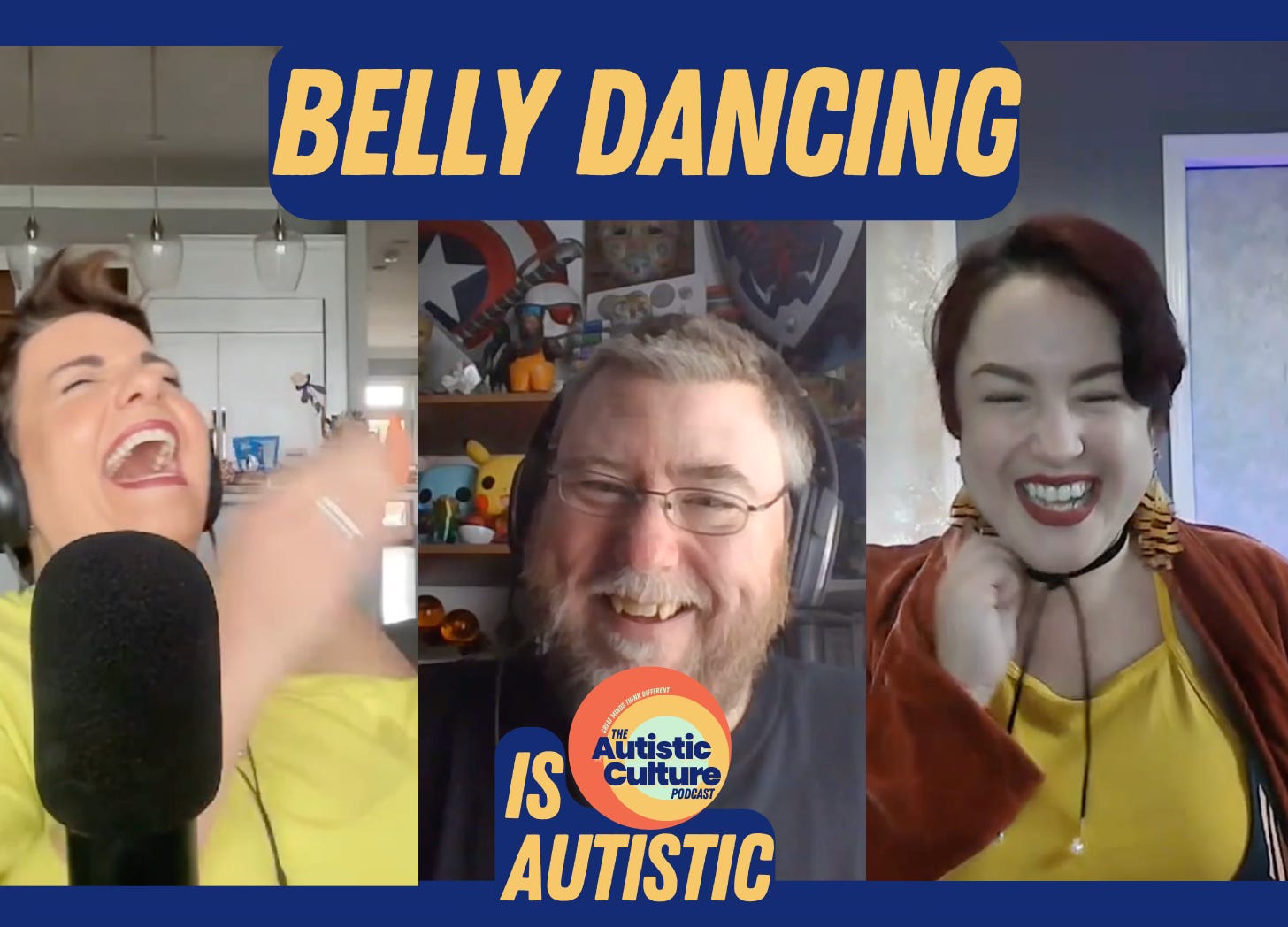
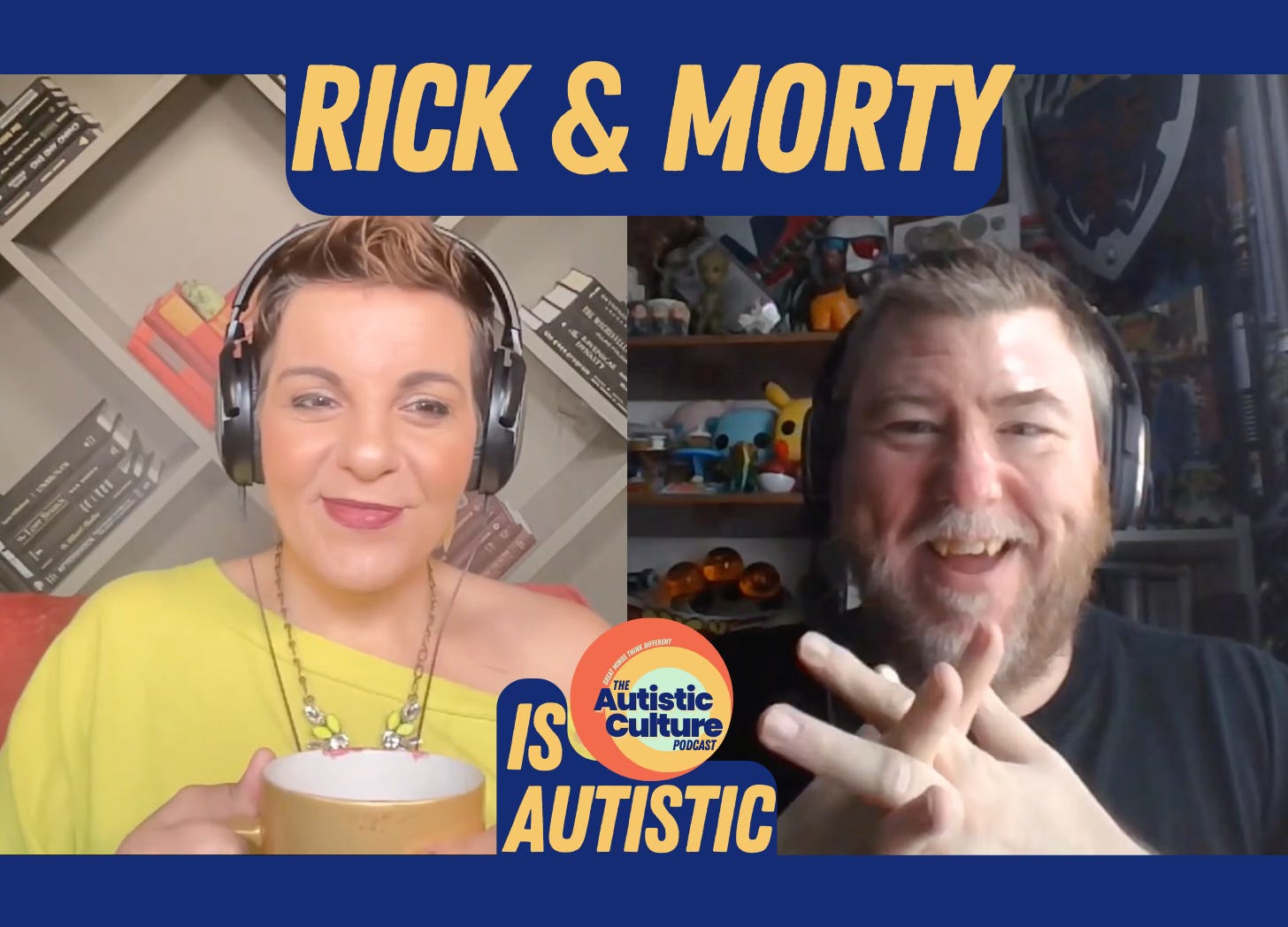

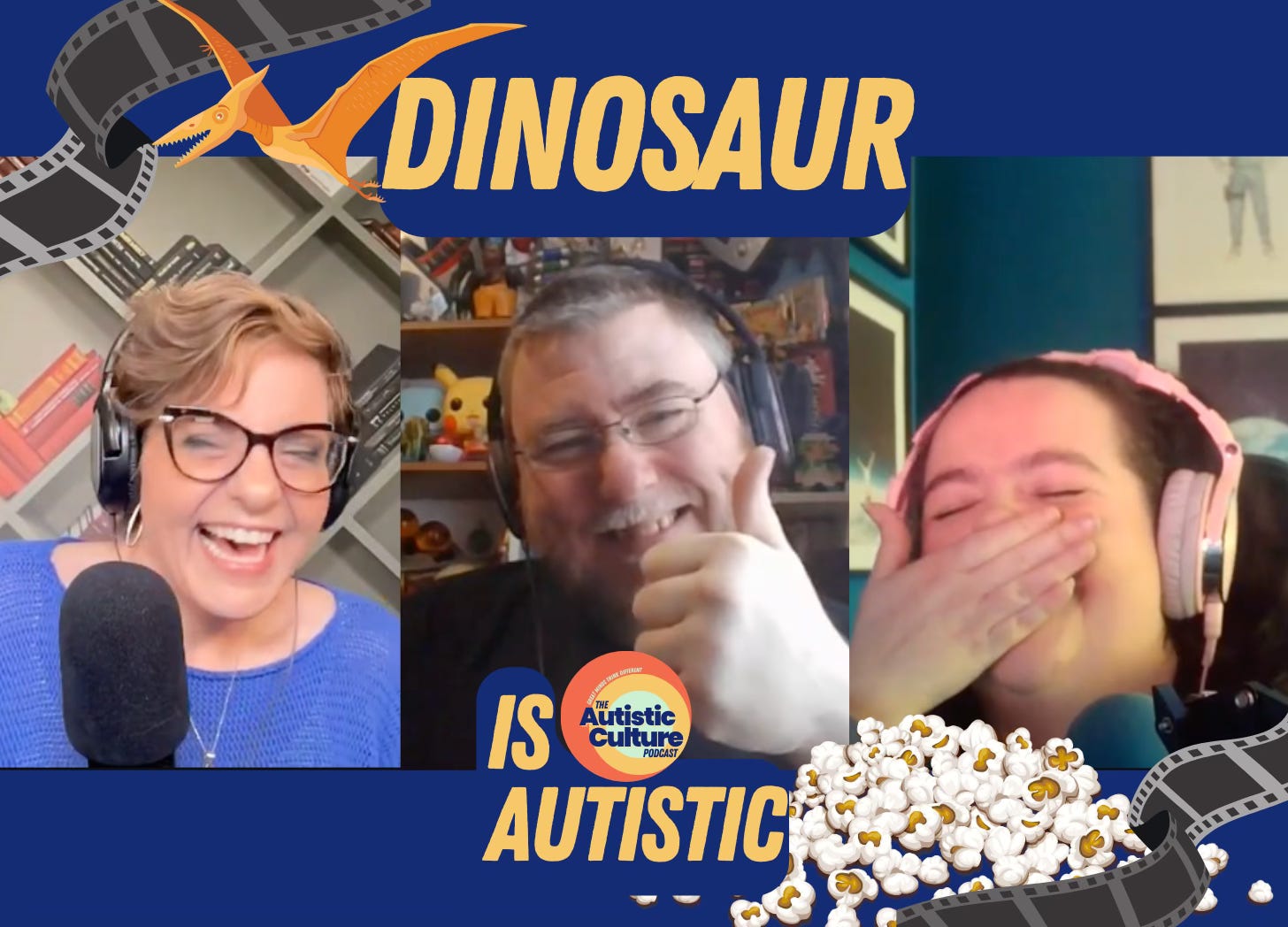
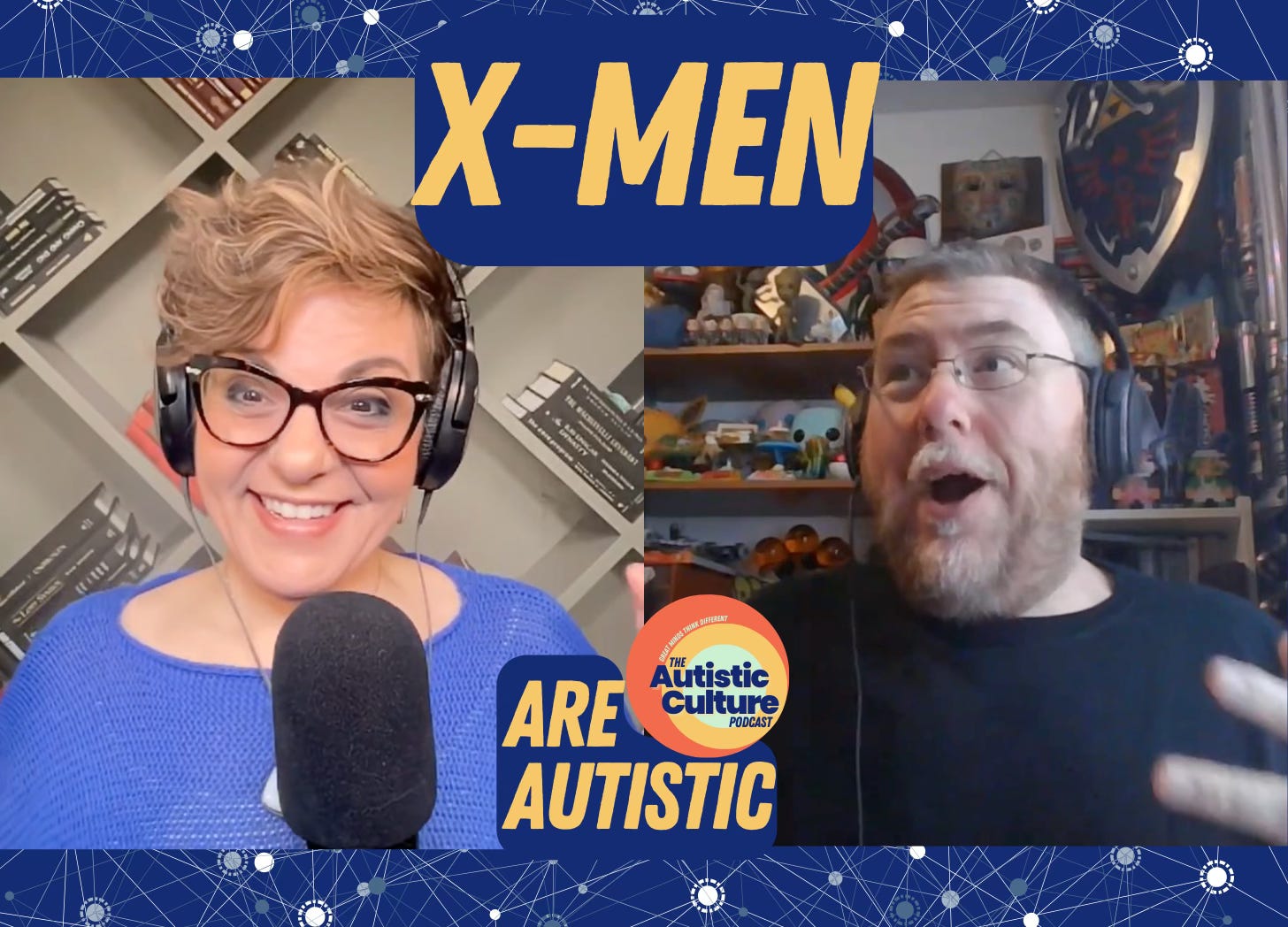
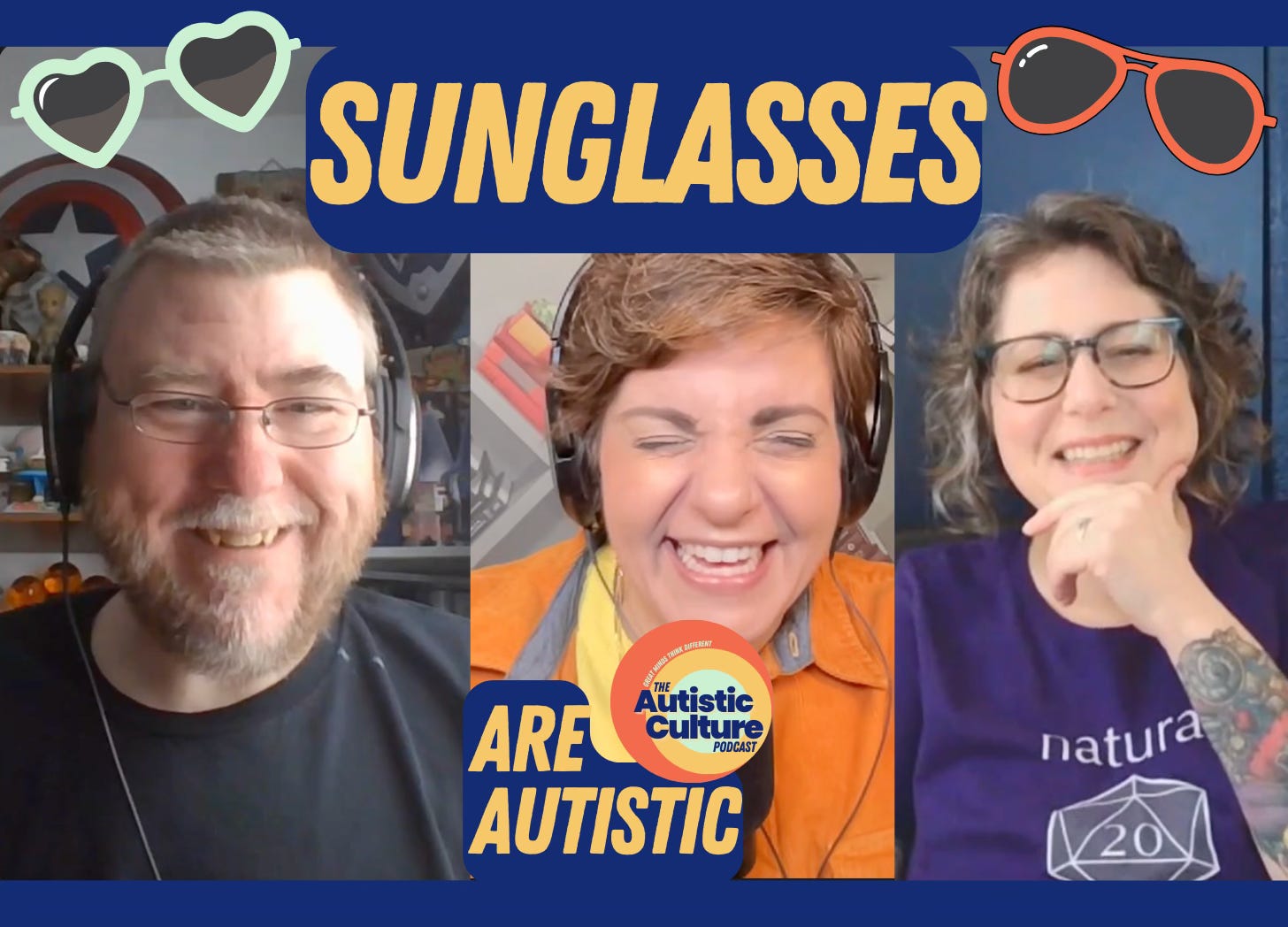
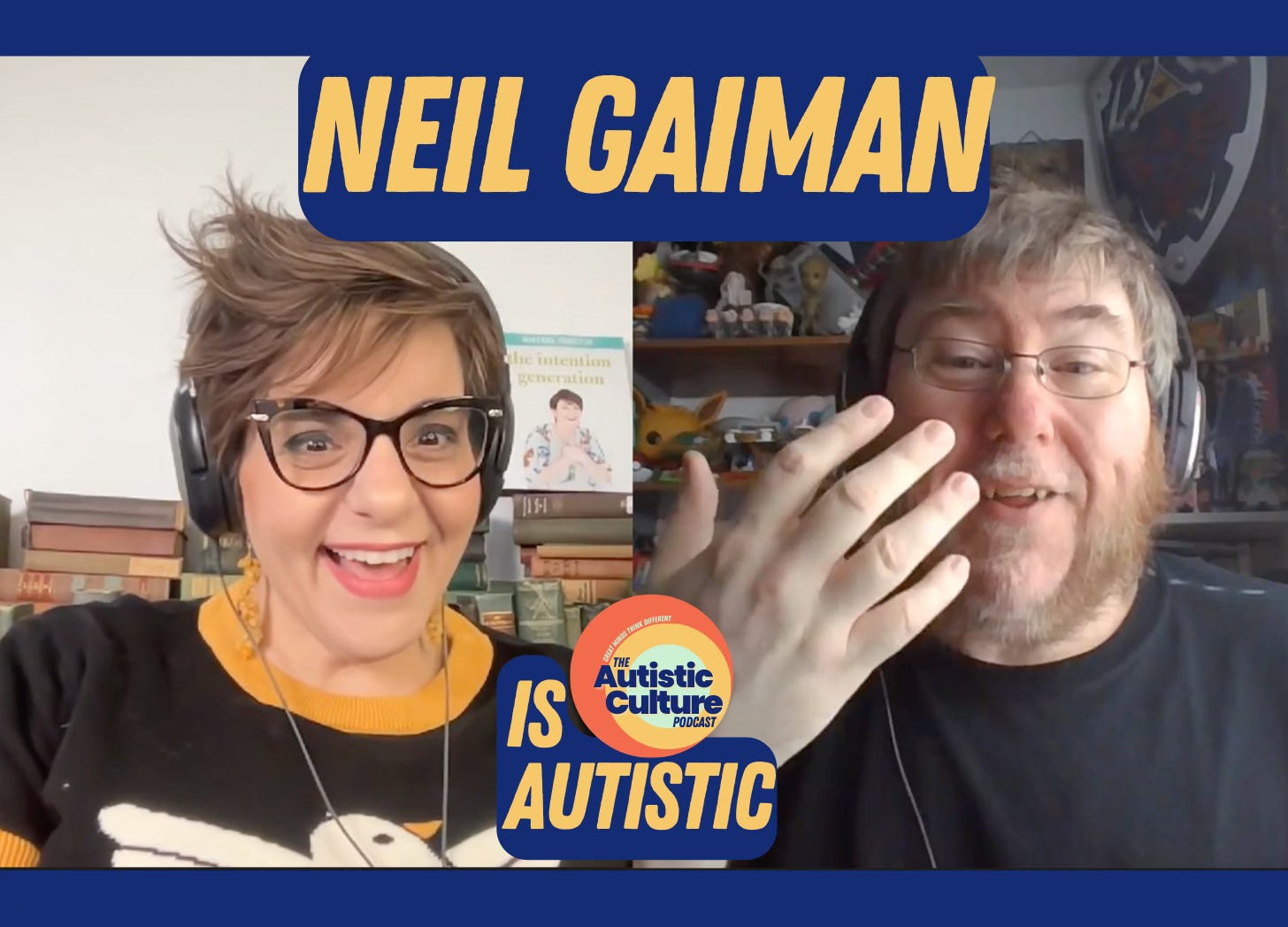
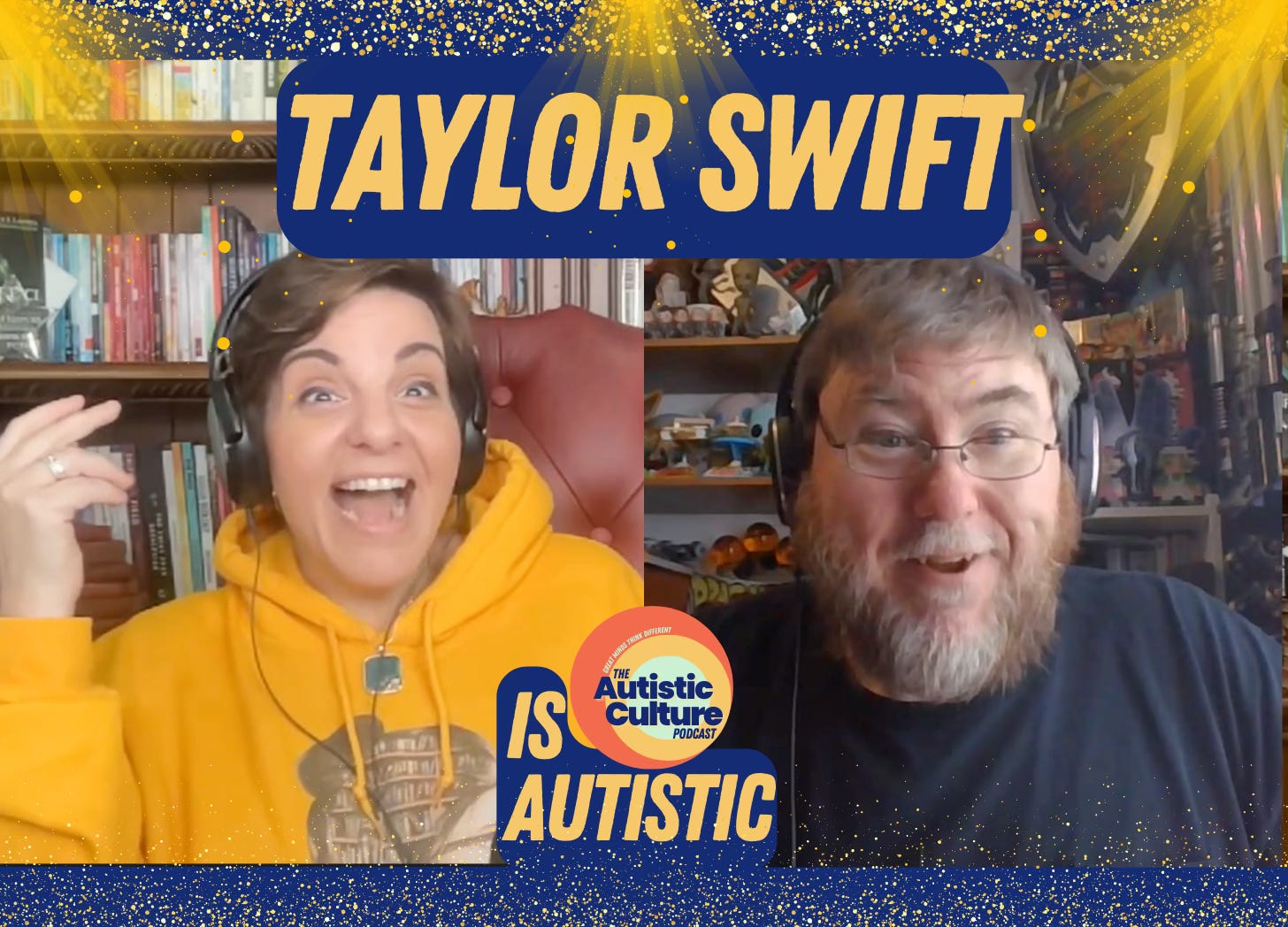
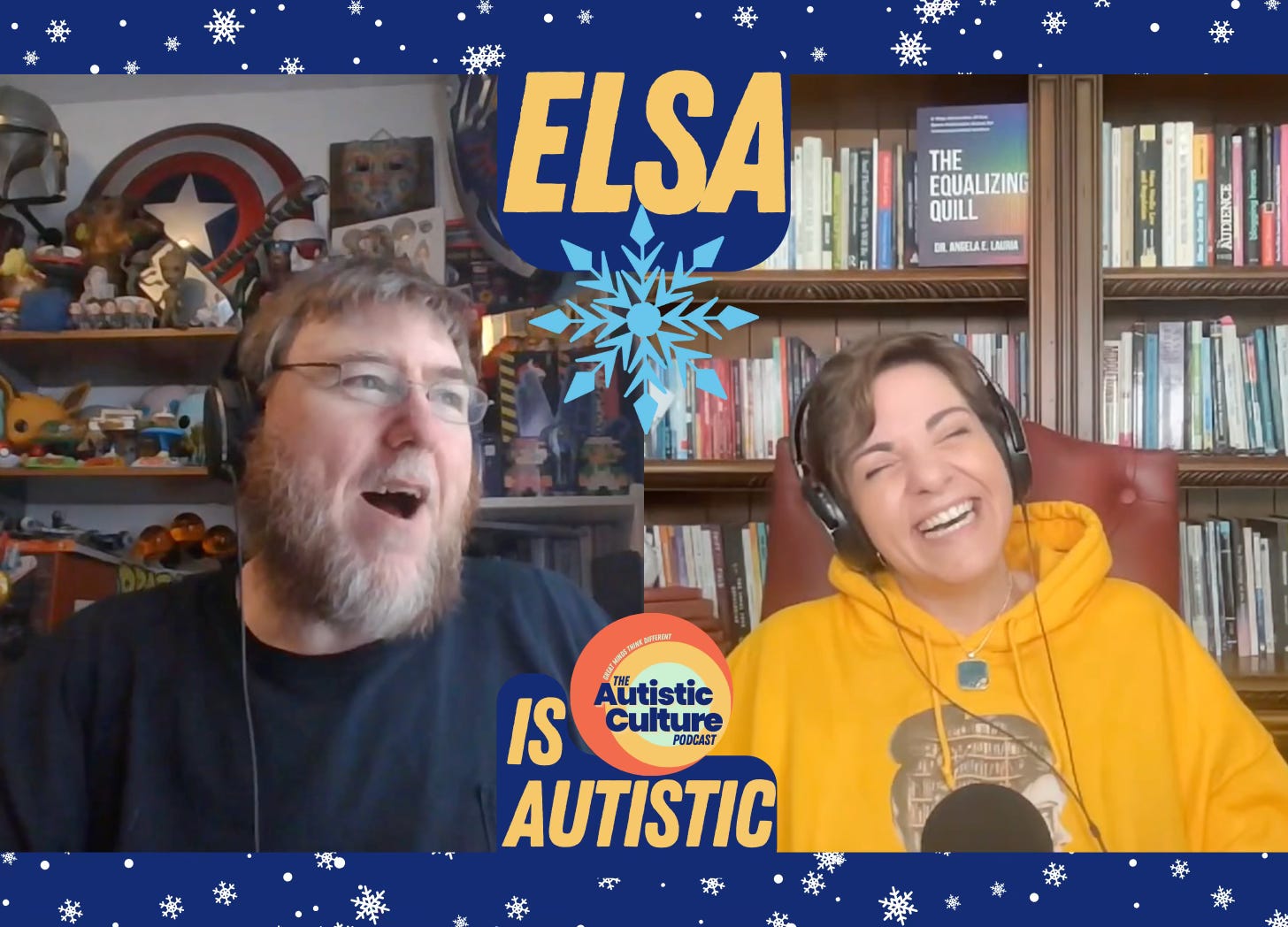
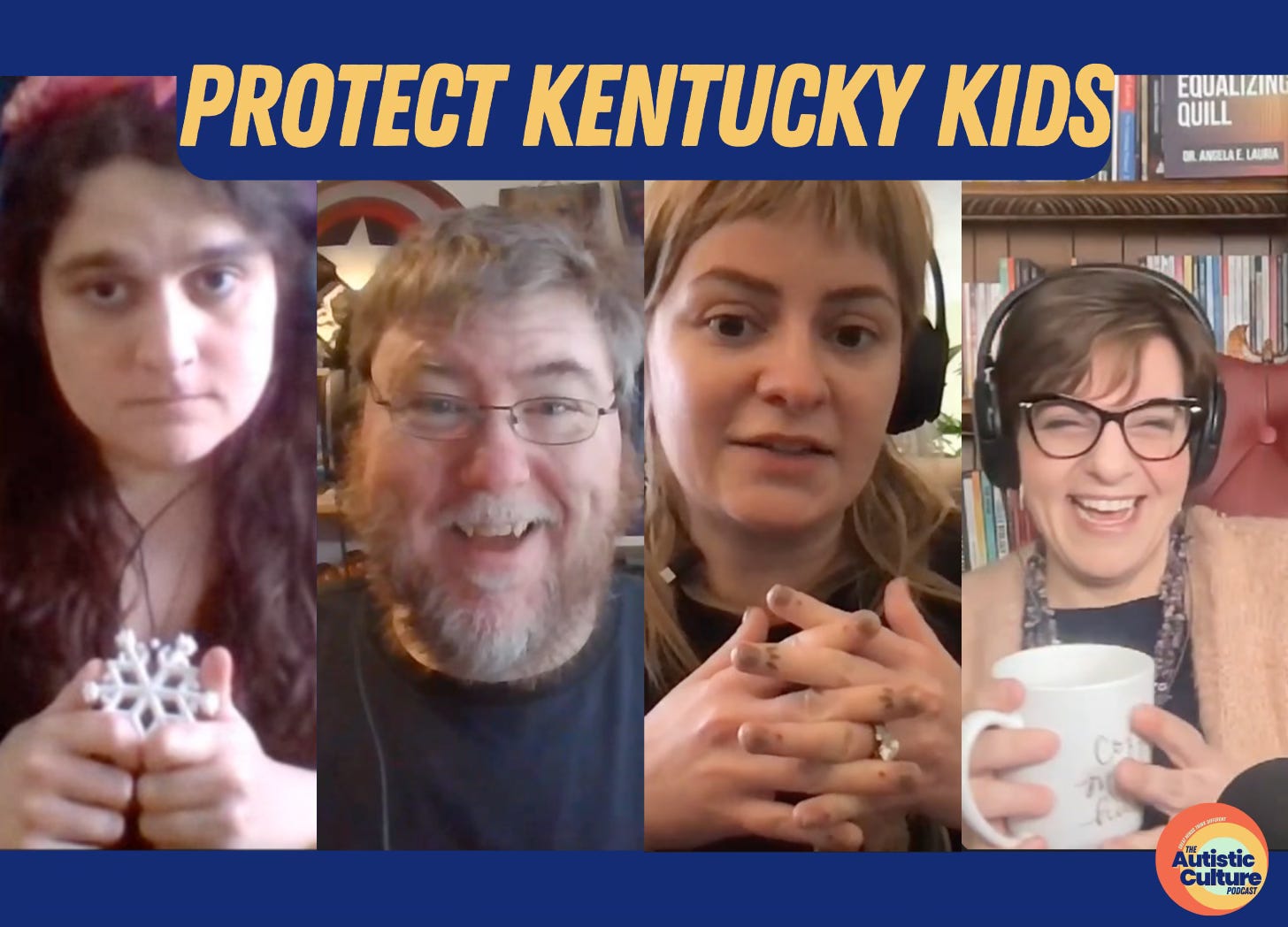
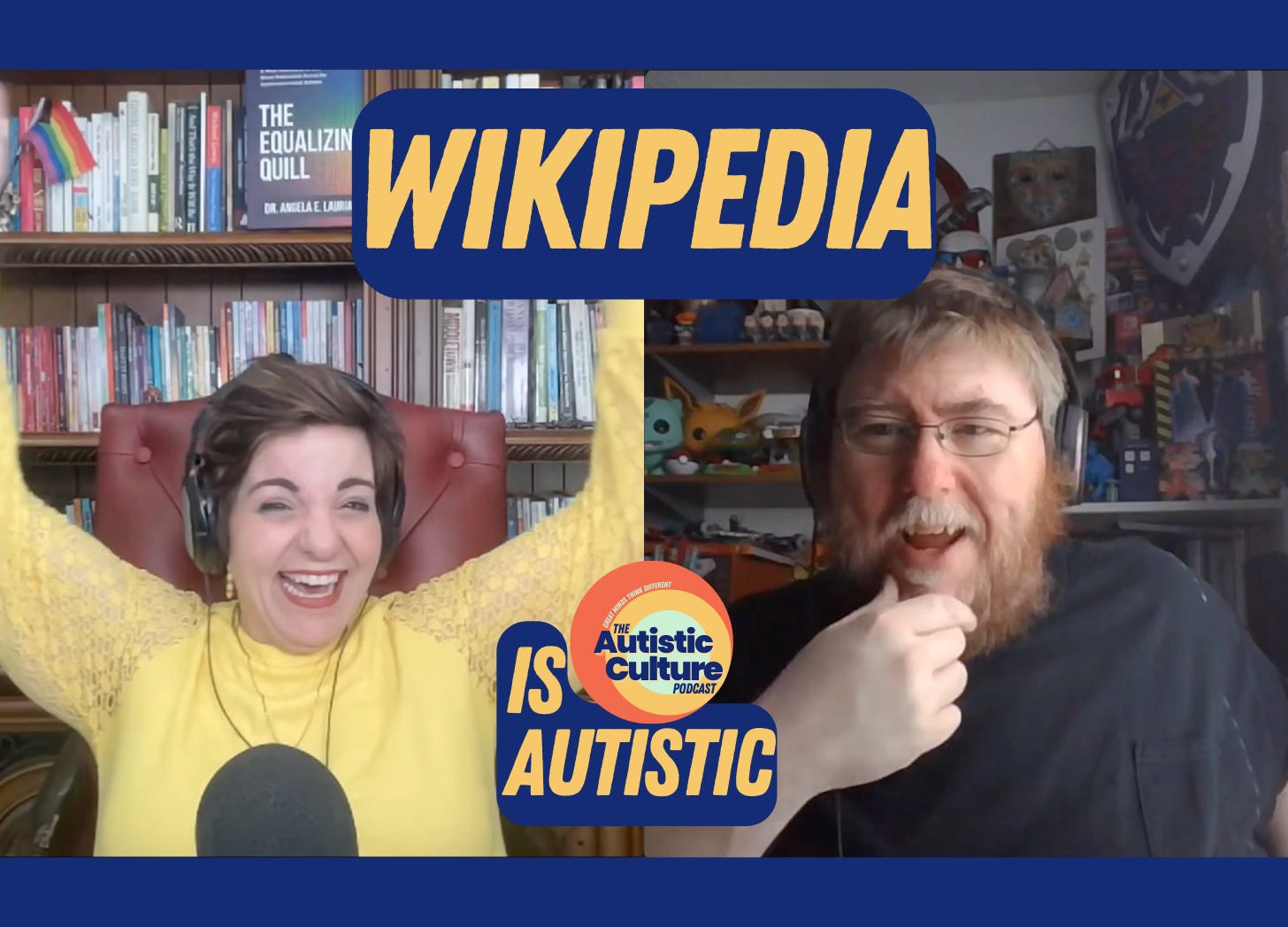
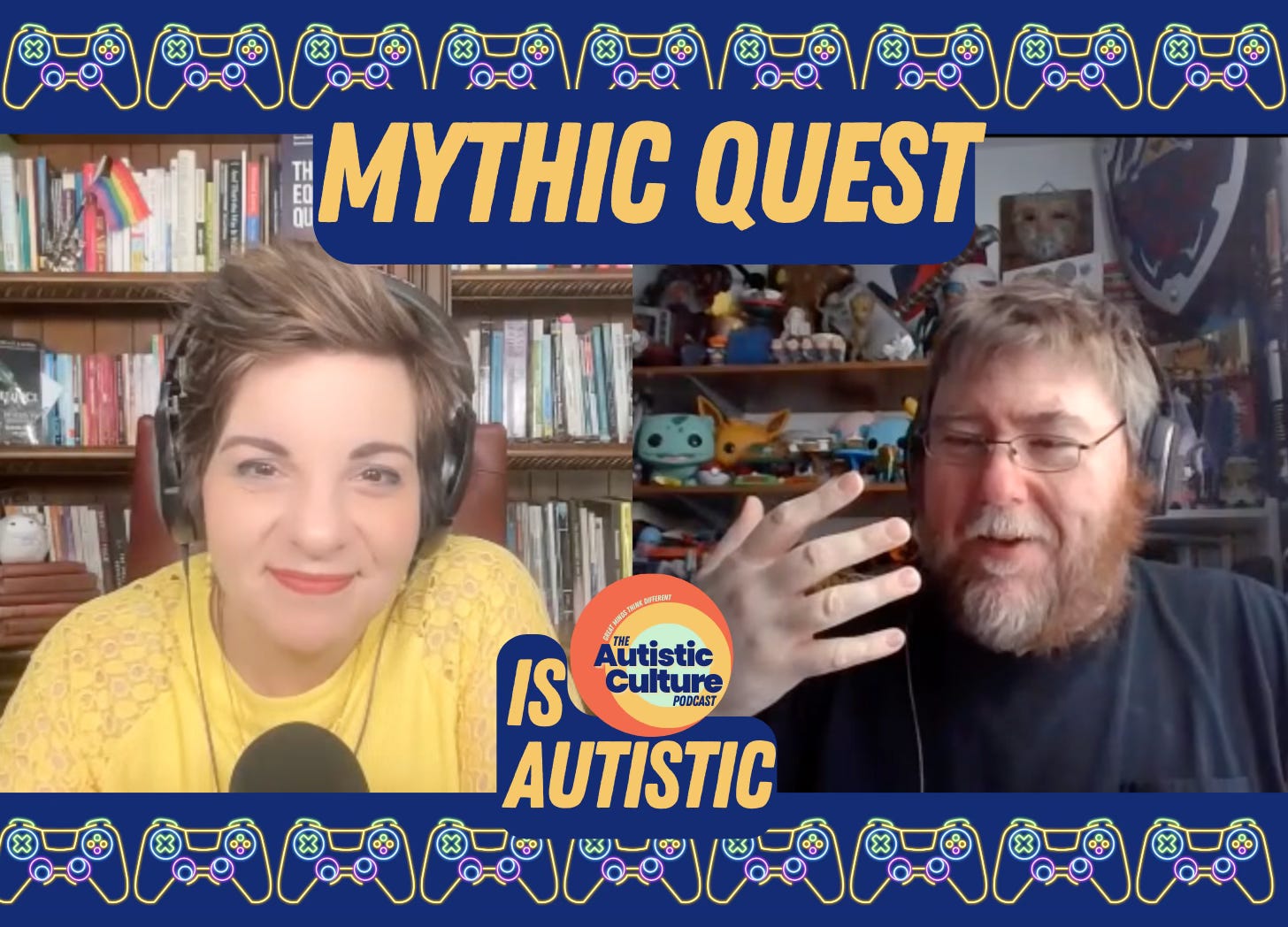
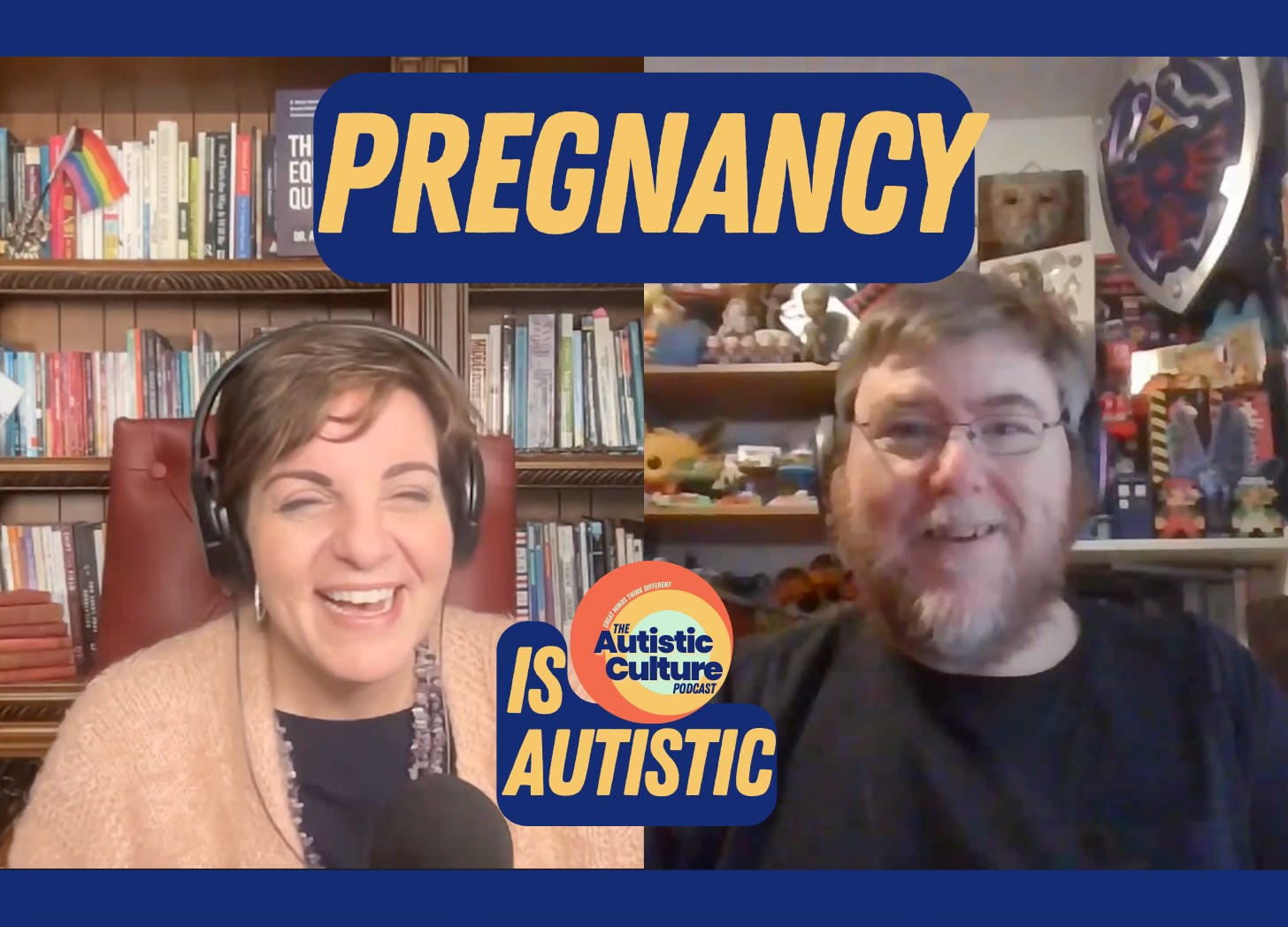
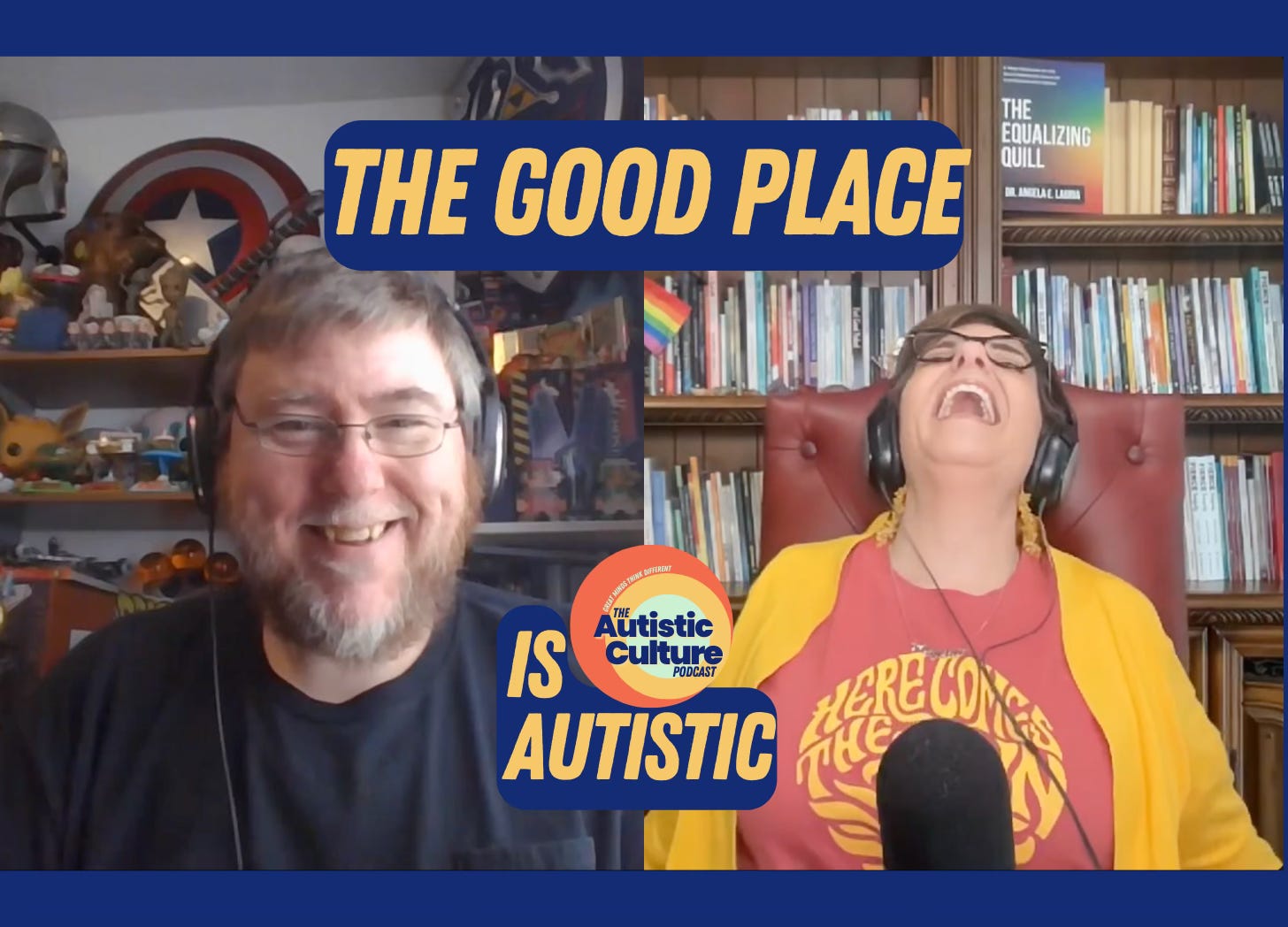
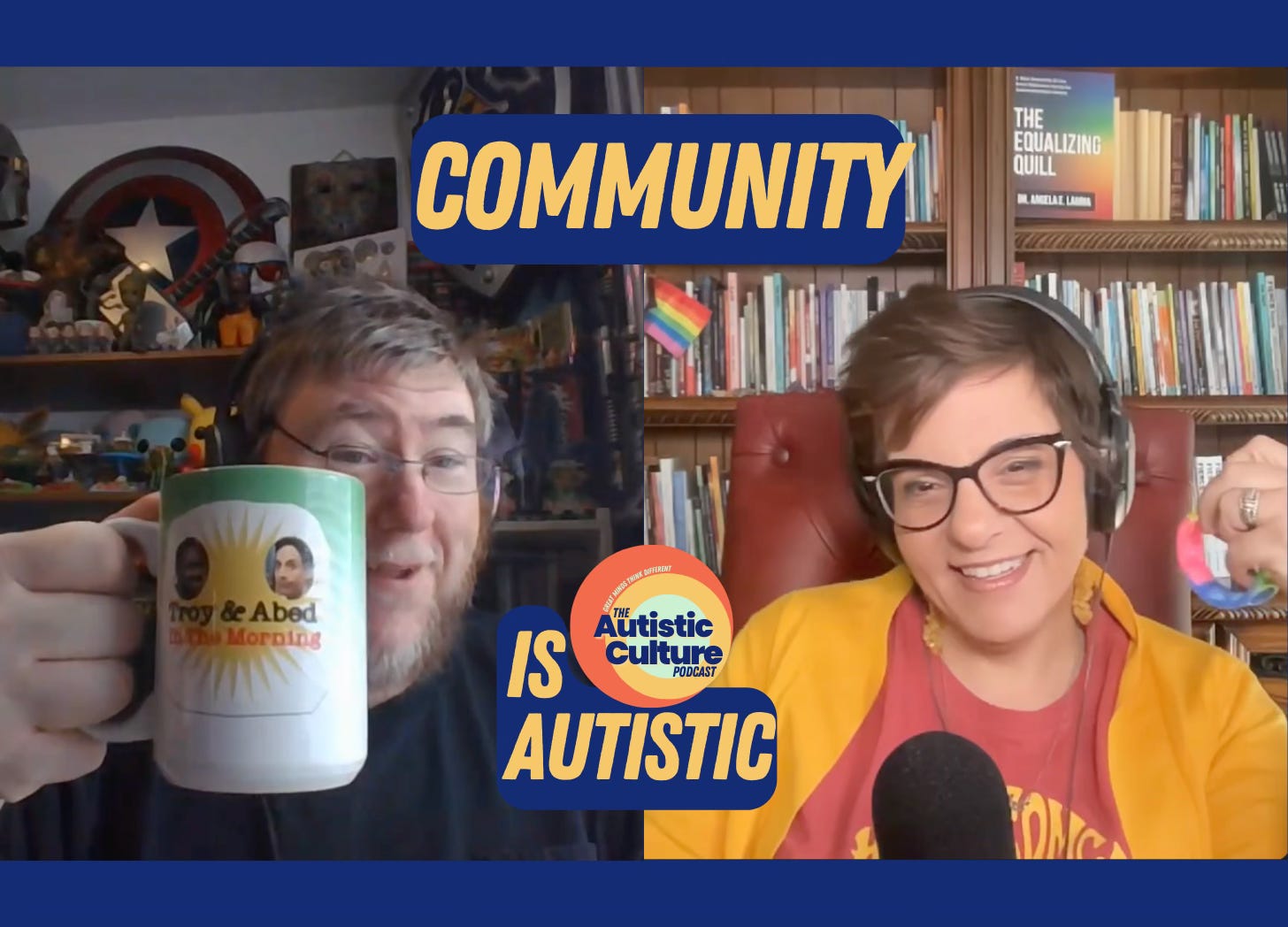
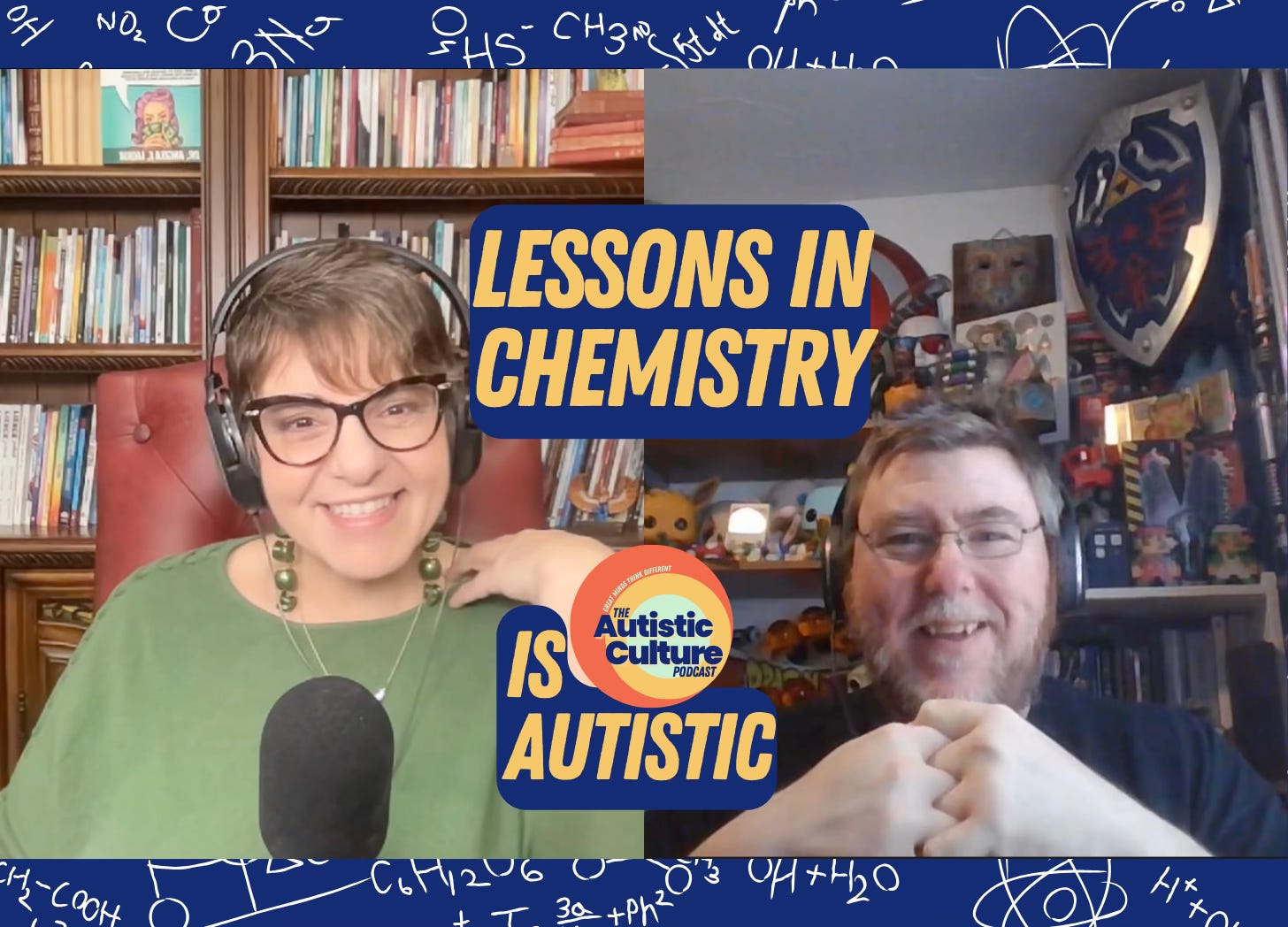
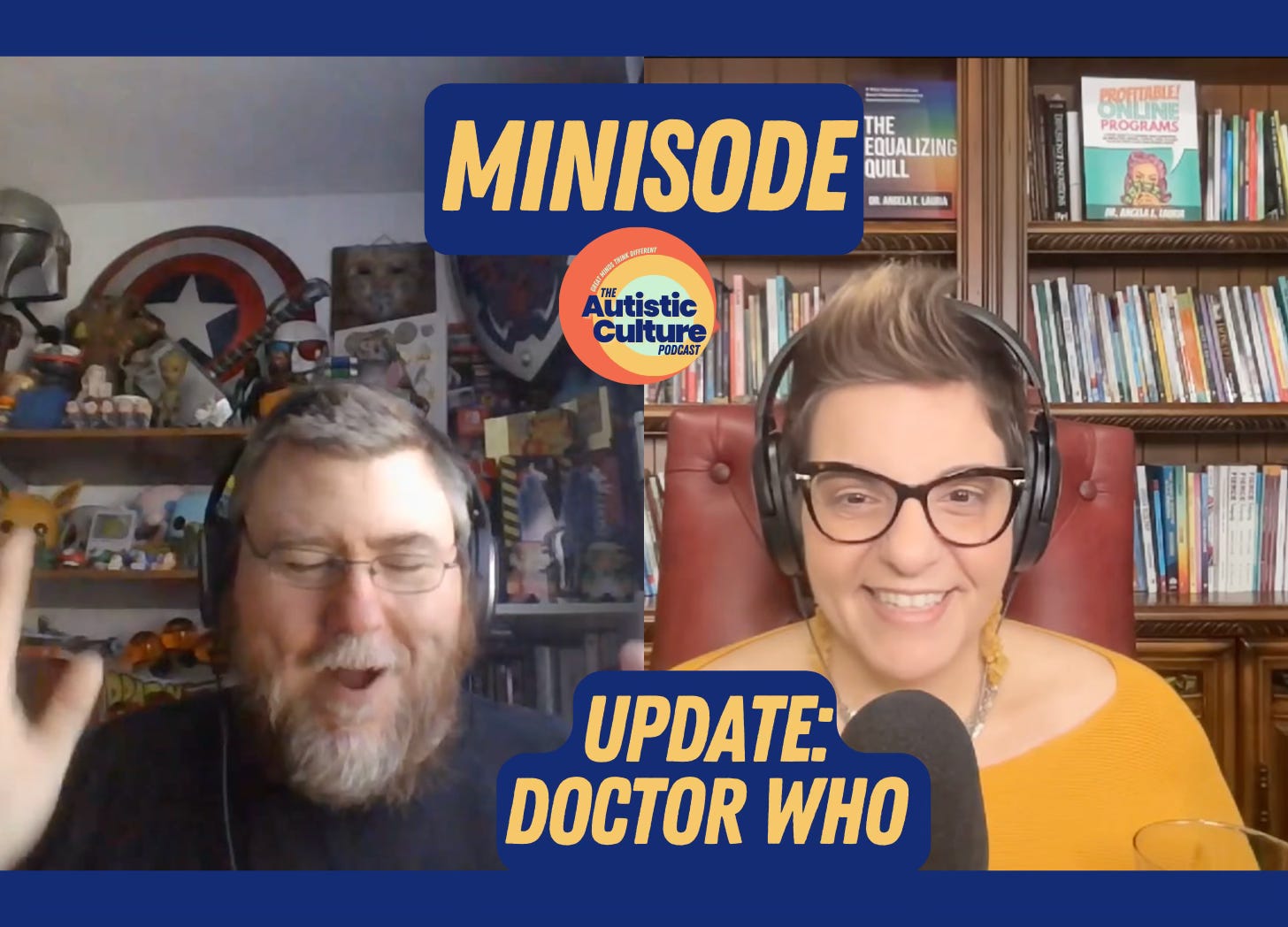
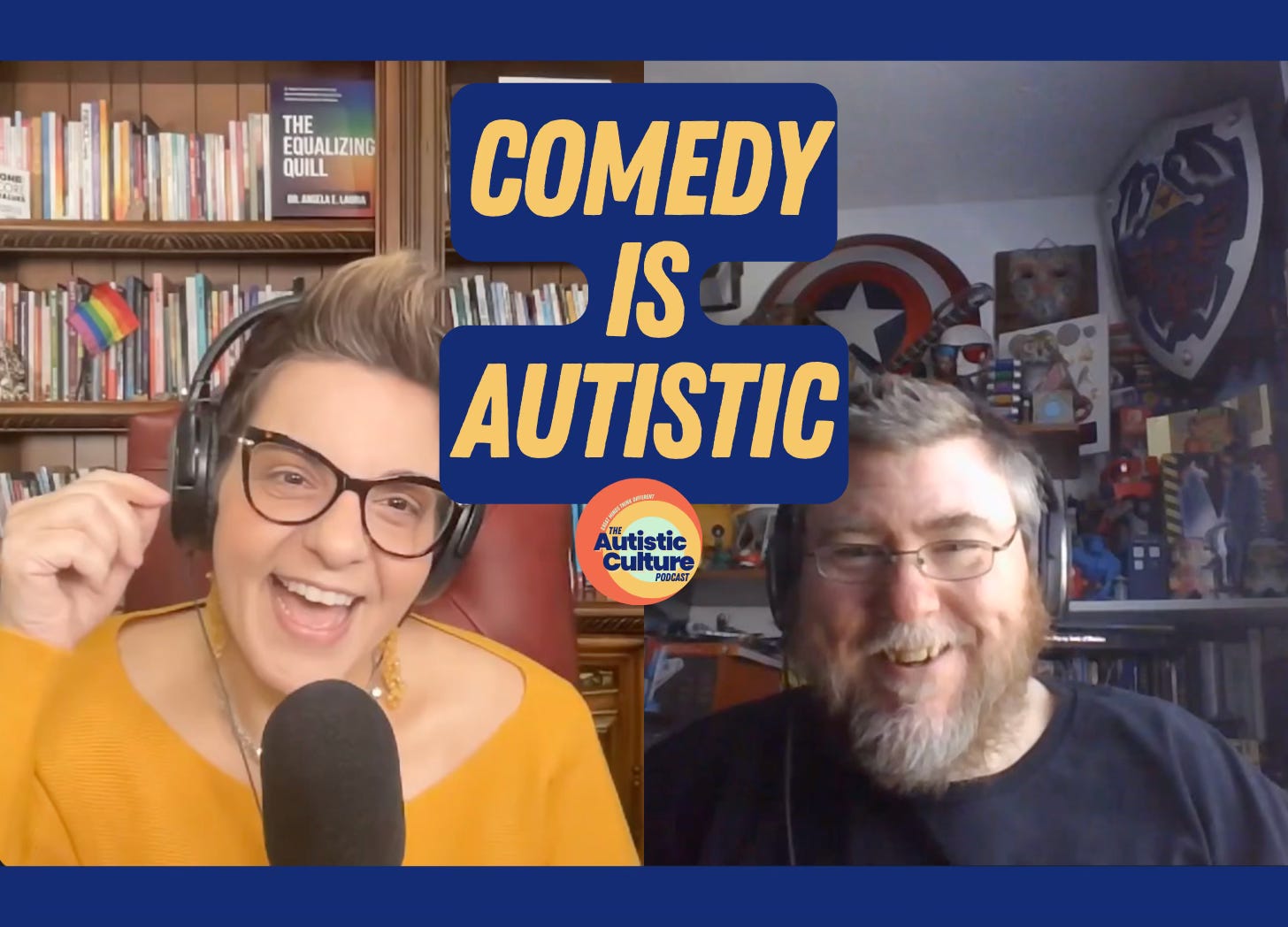
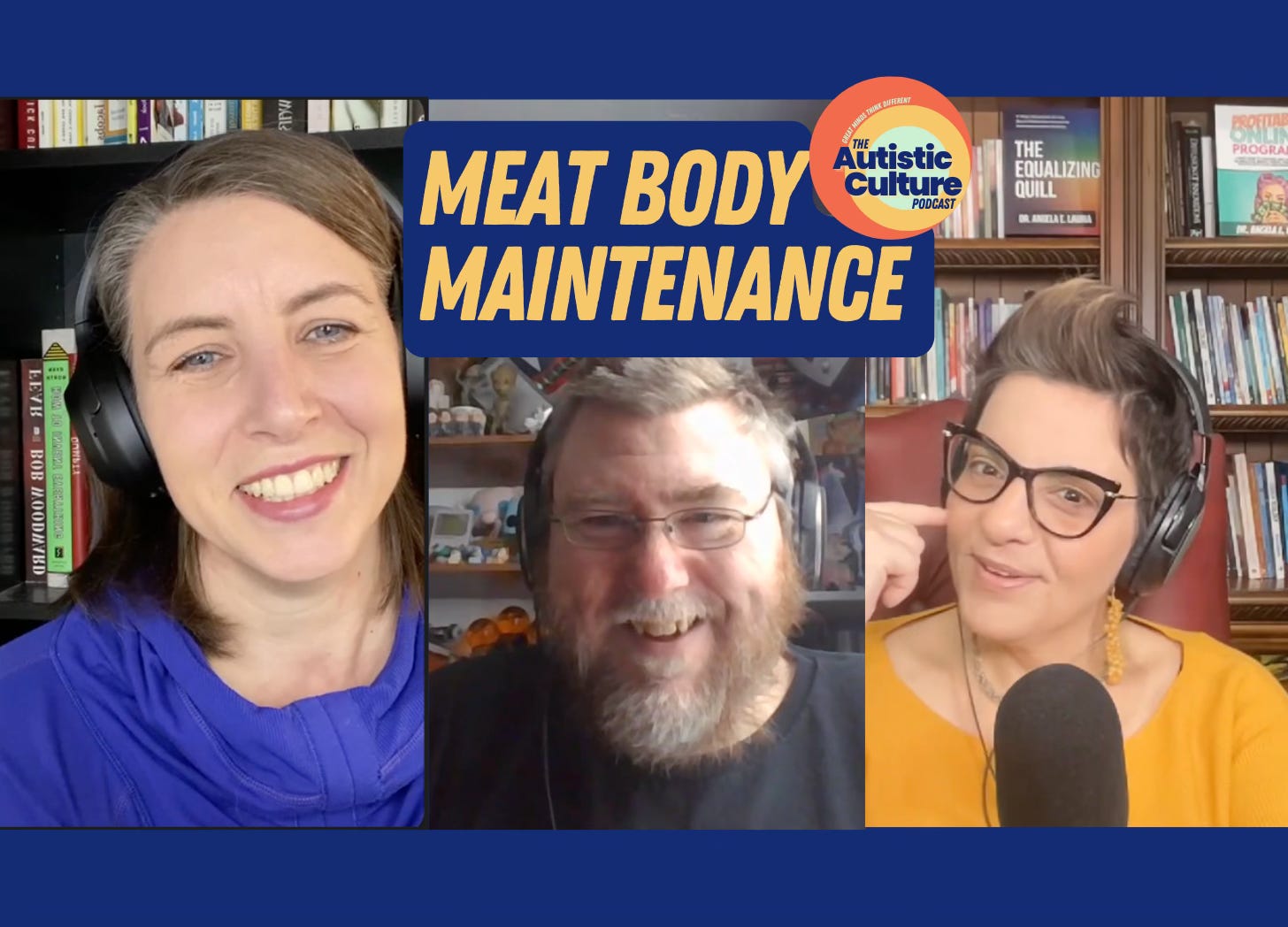
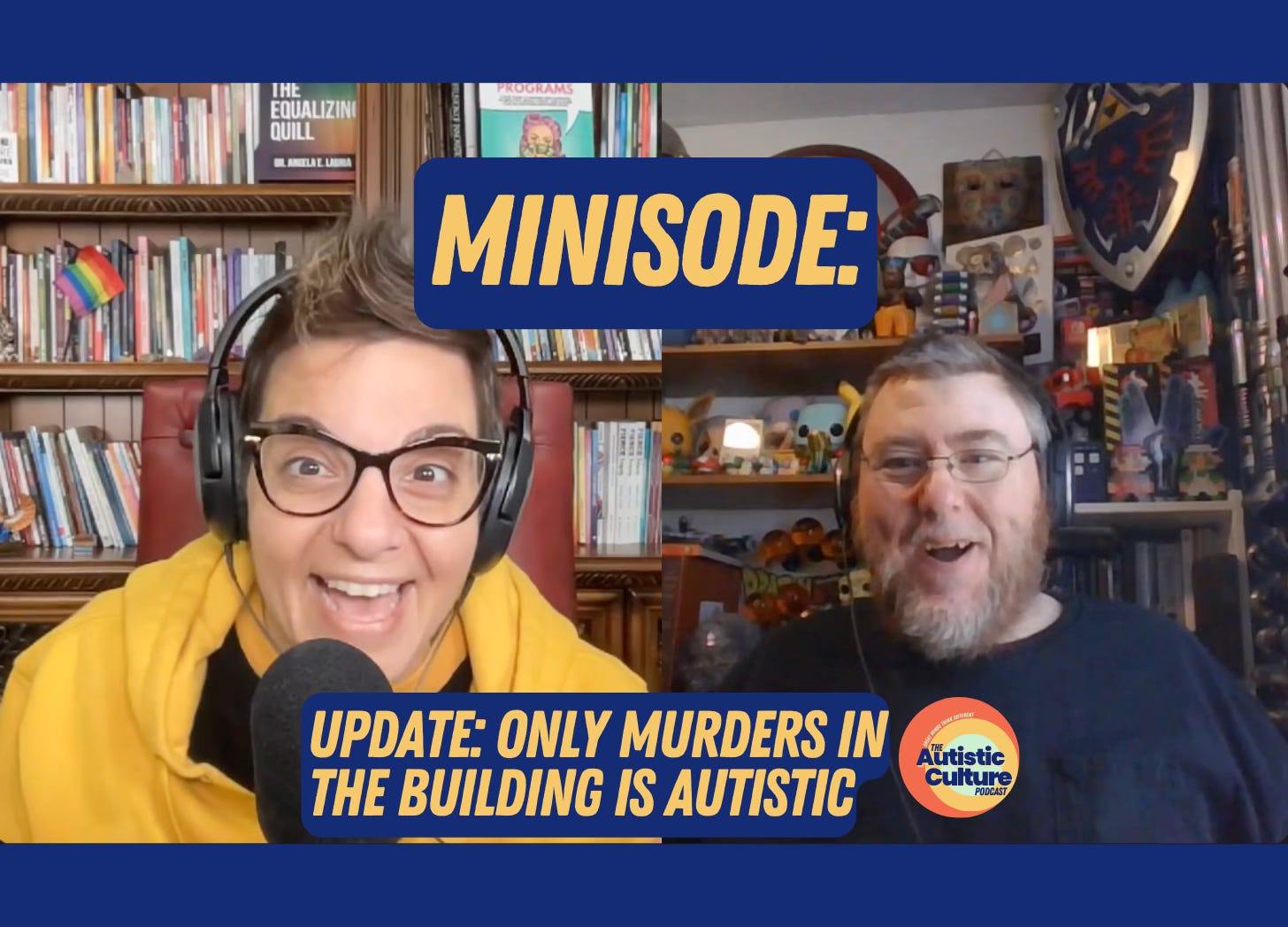



the youngest kid with the bunny ears is called Louise, not Tina 😊